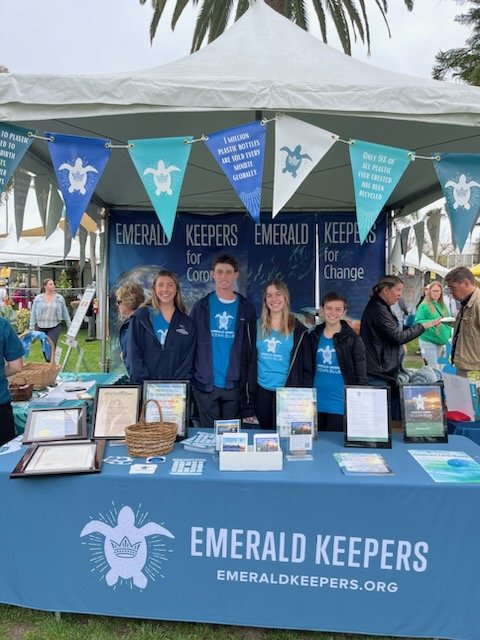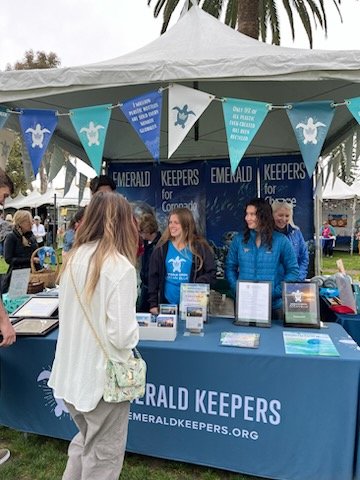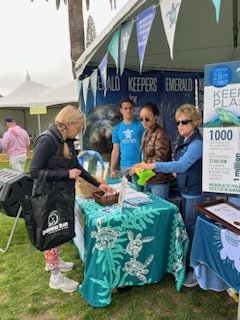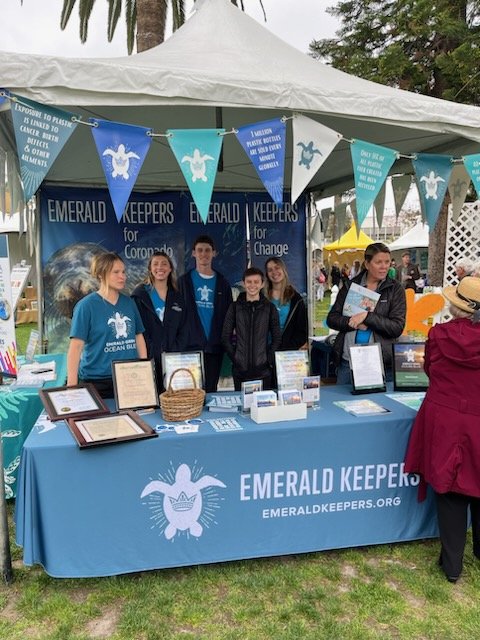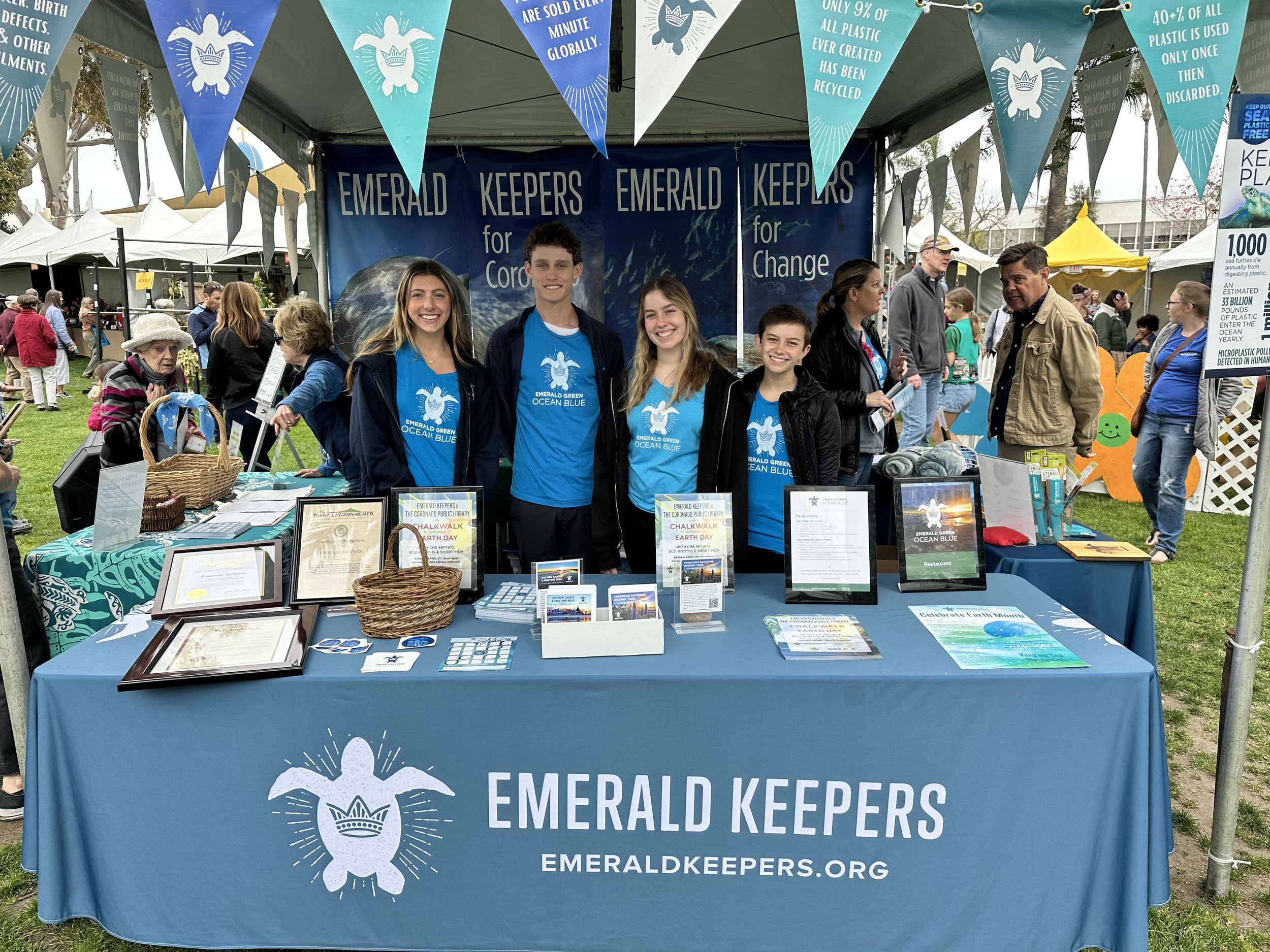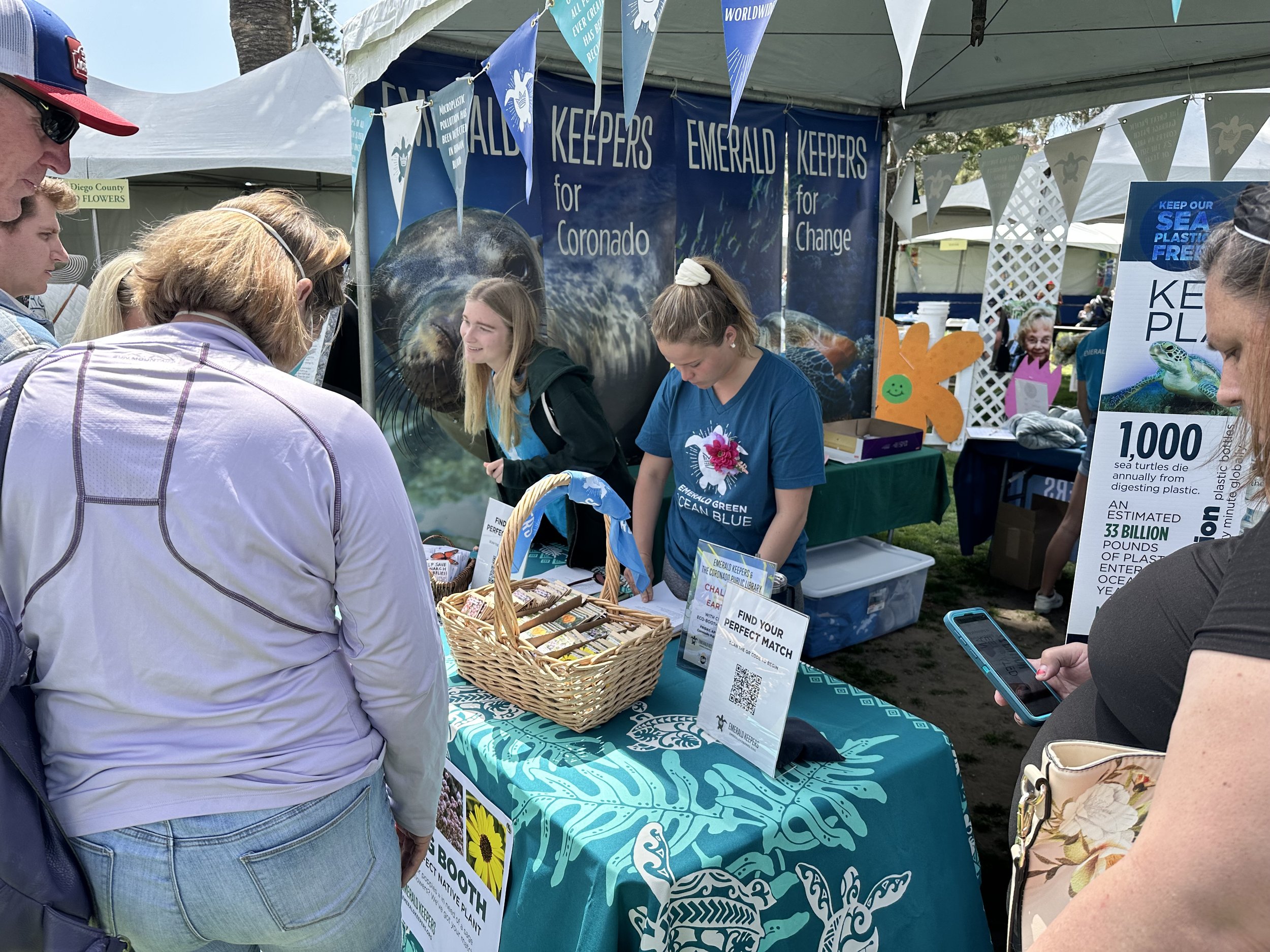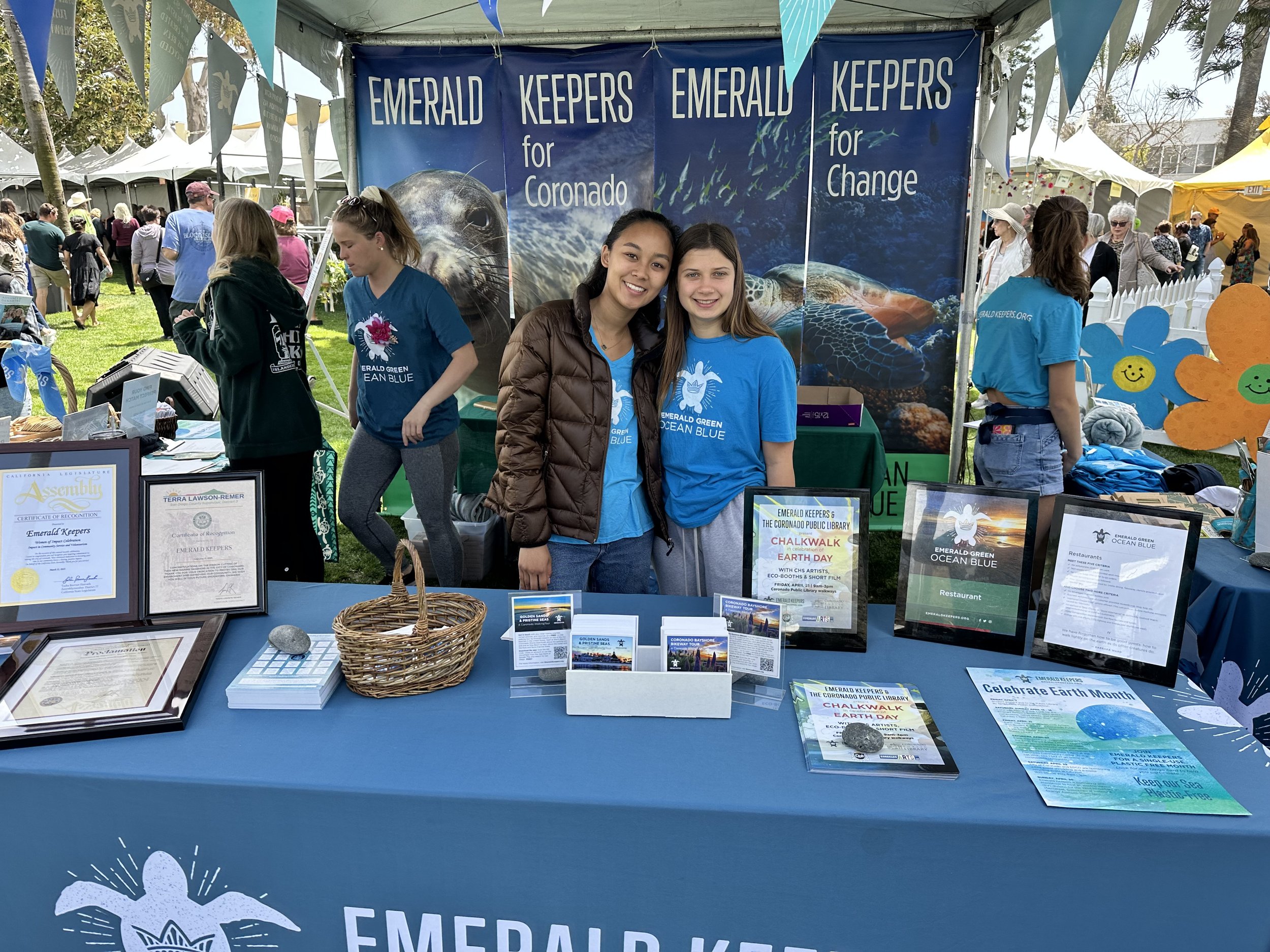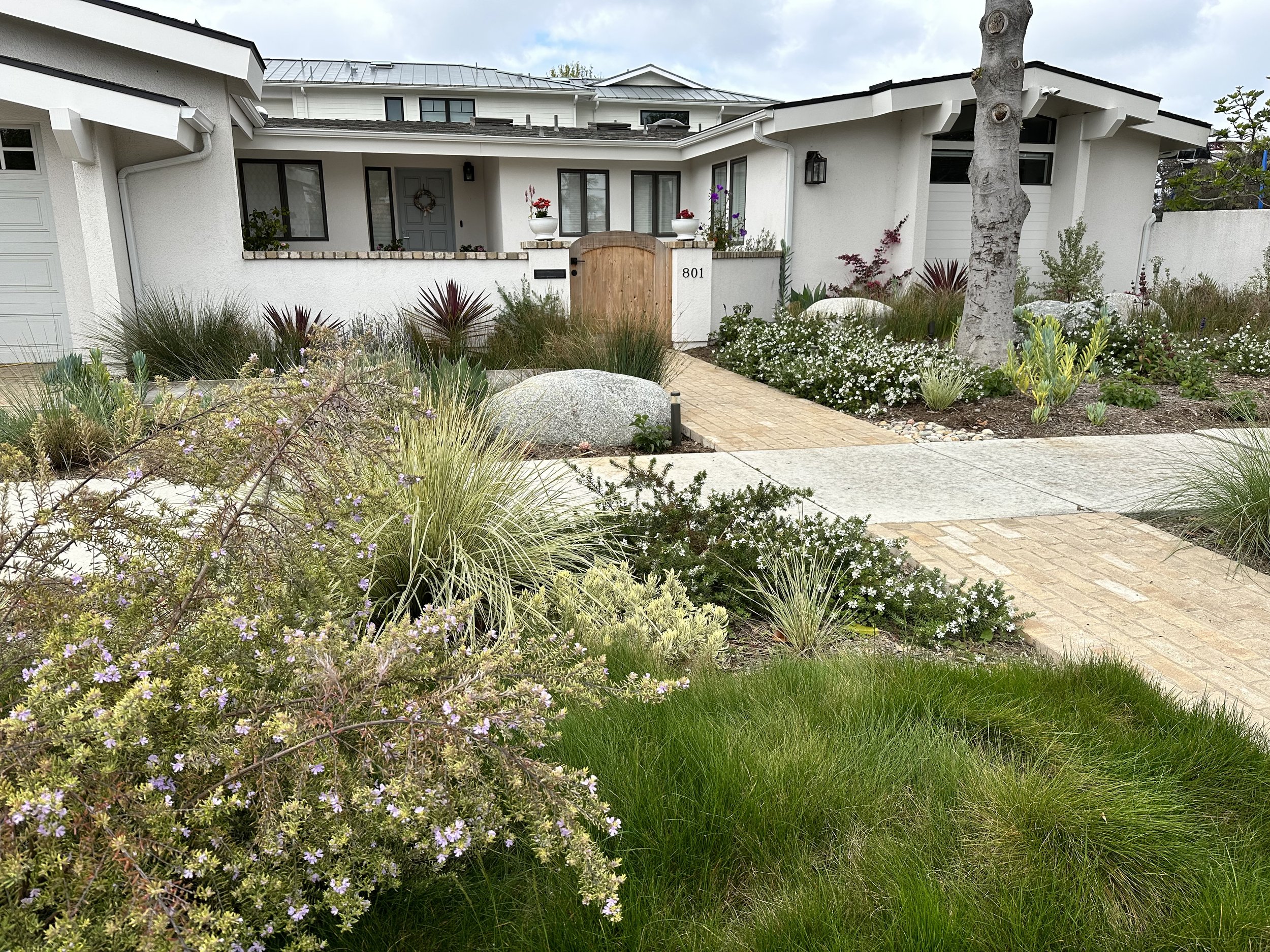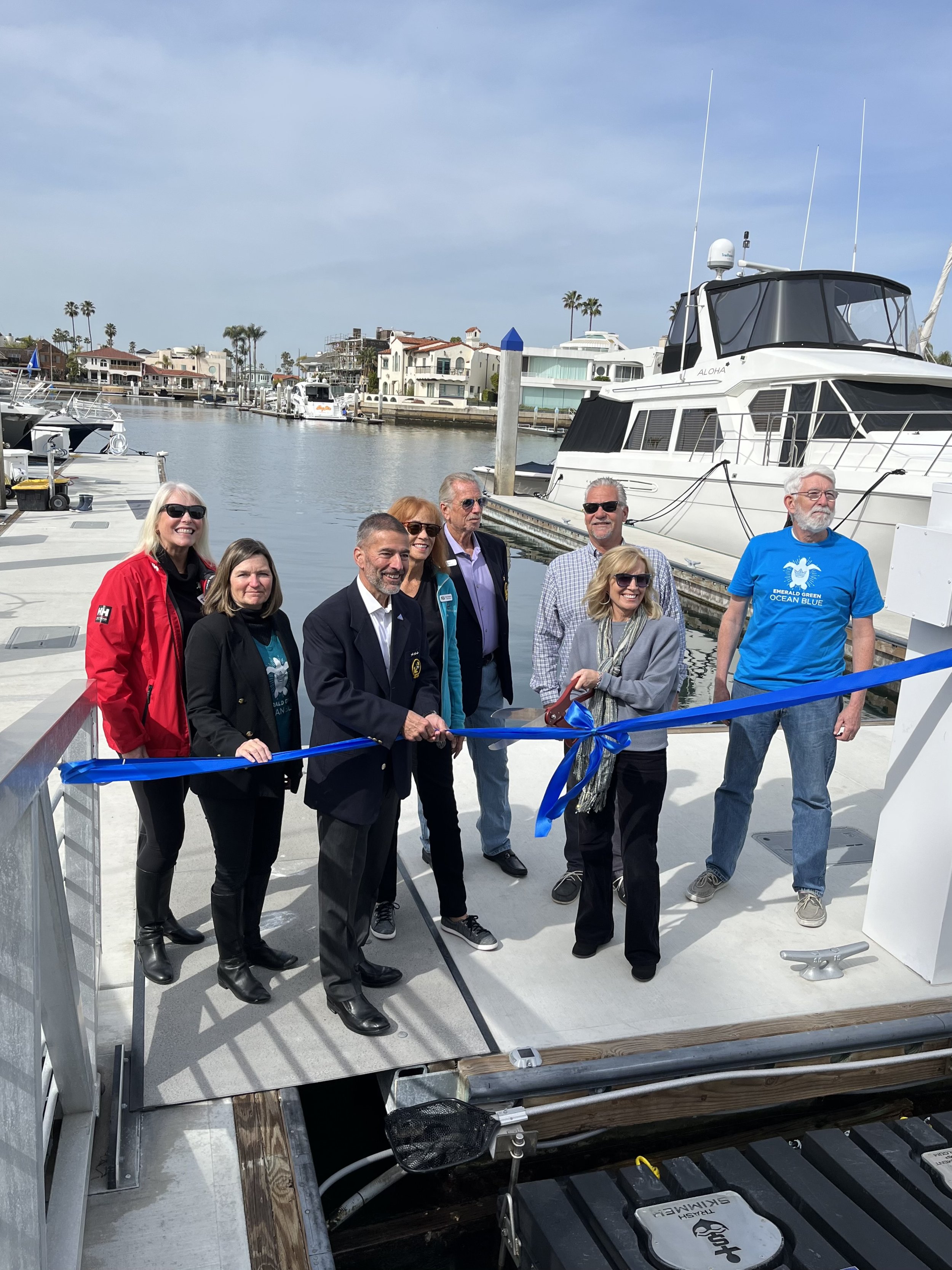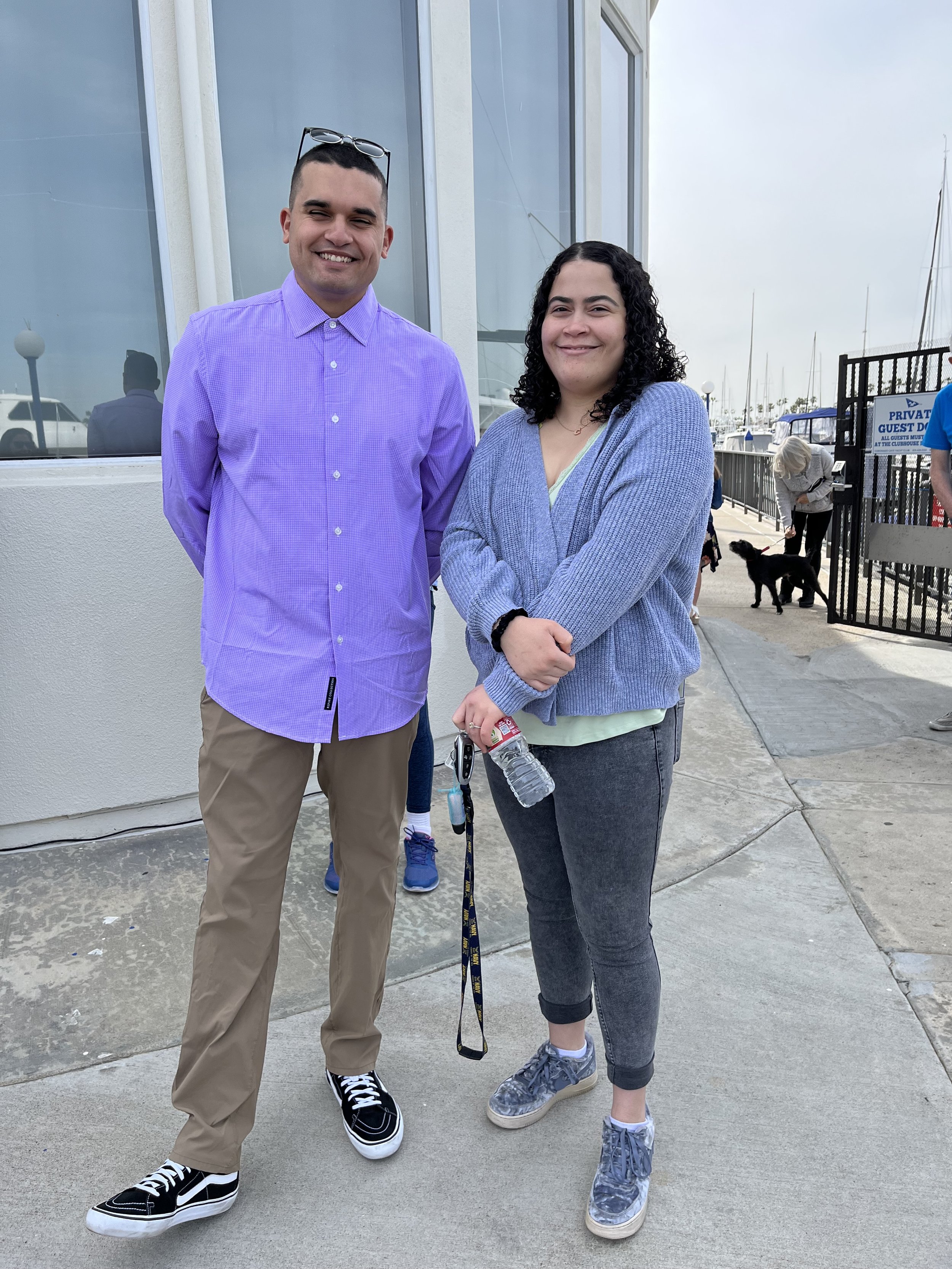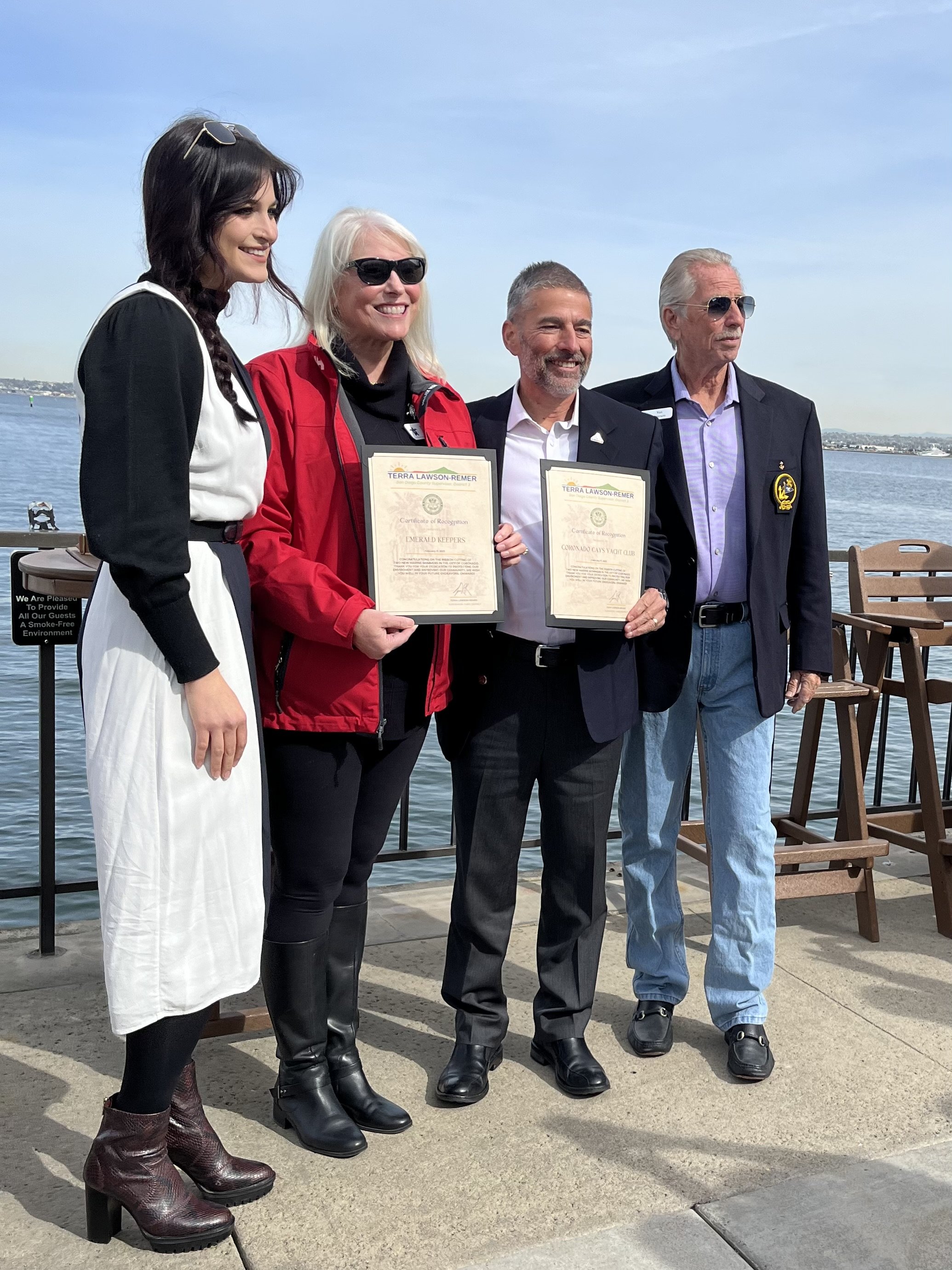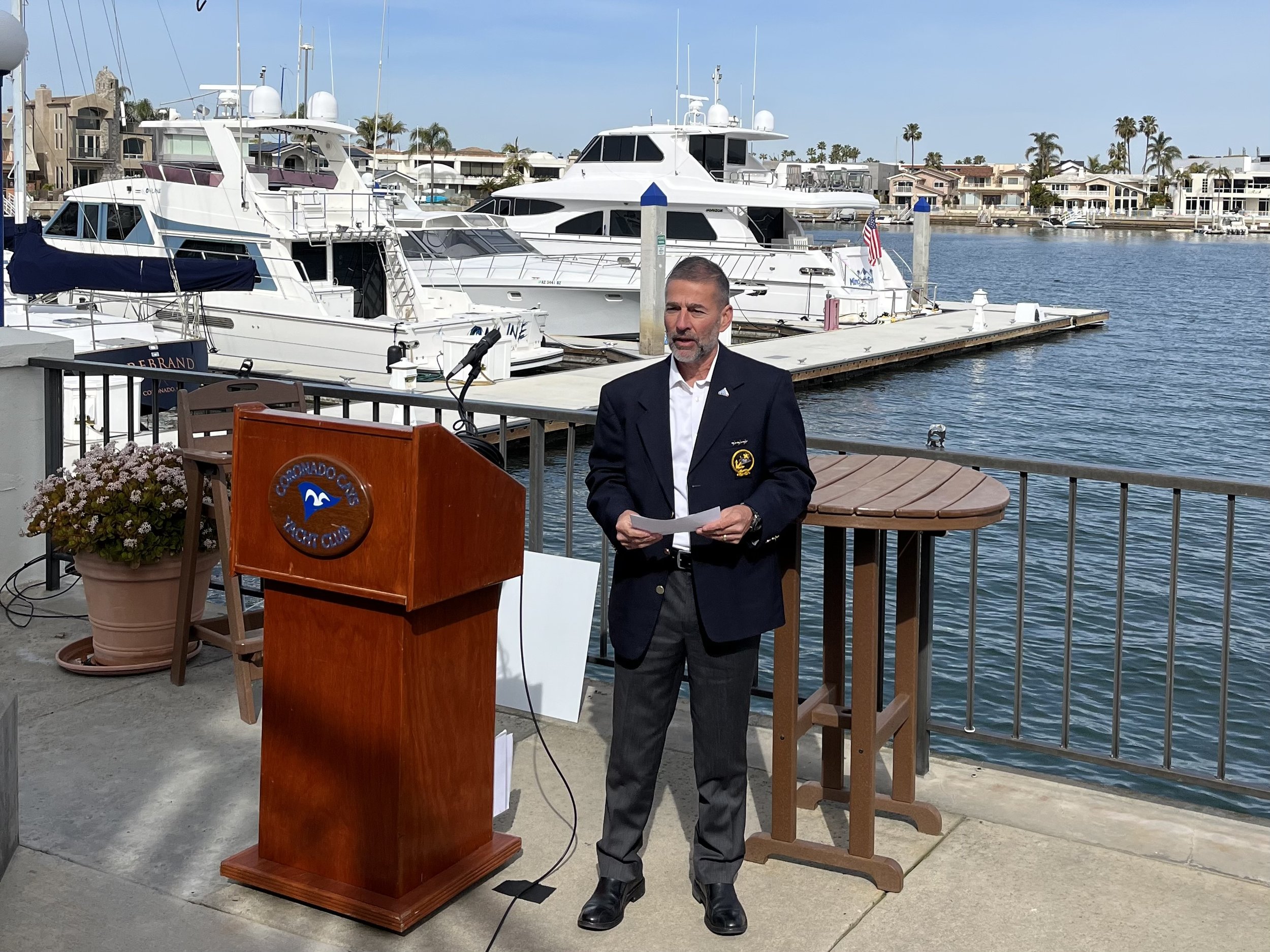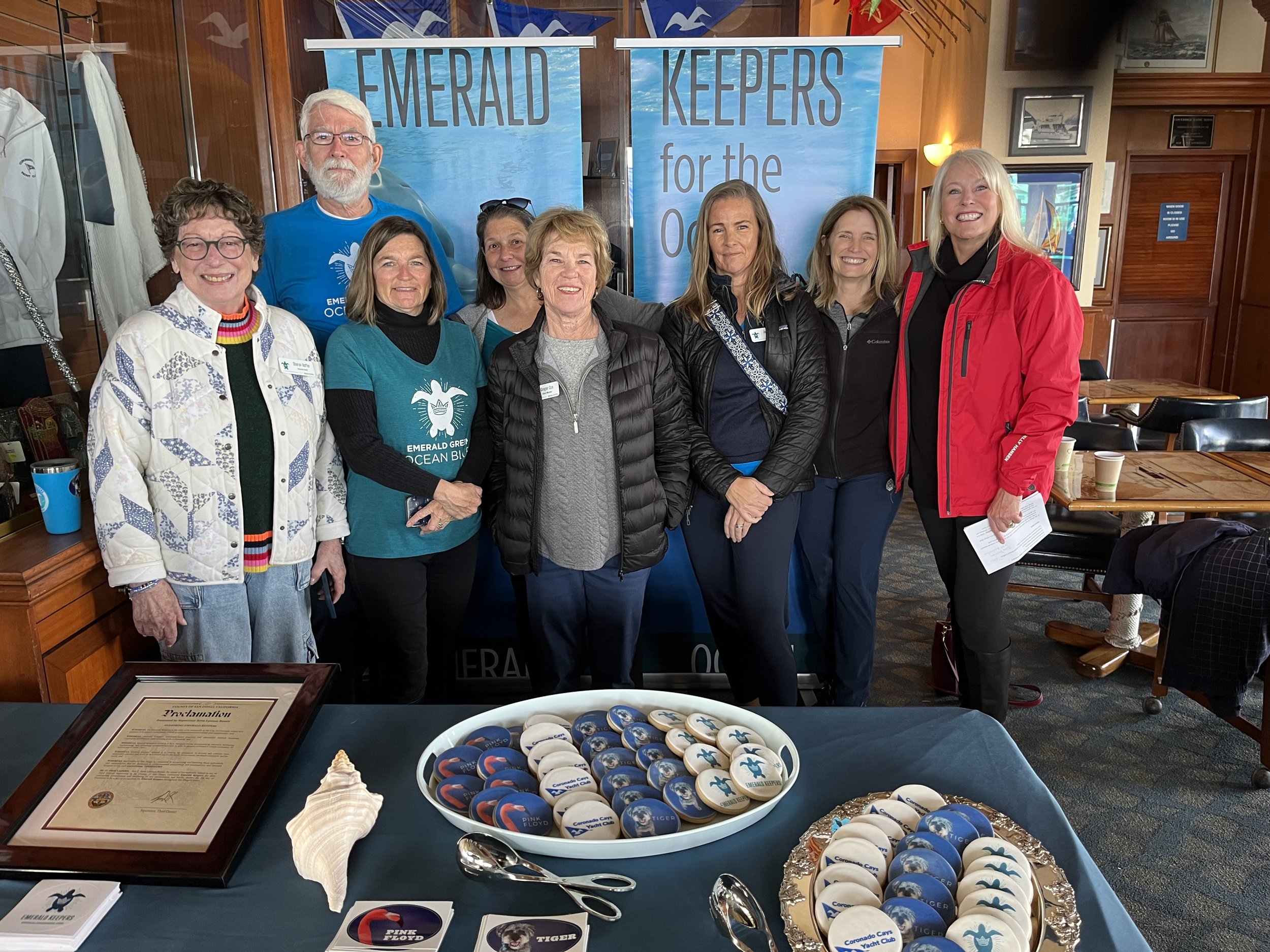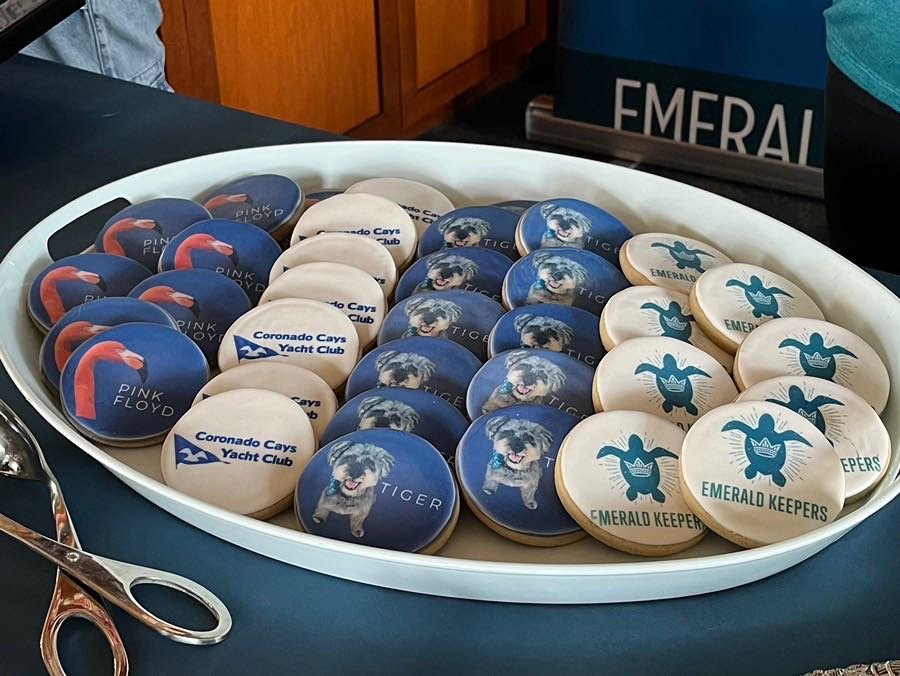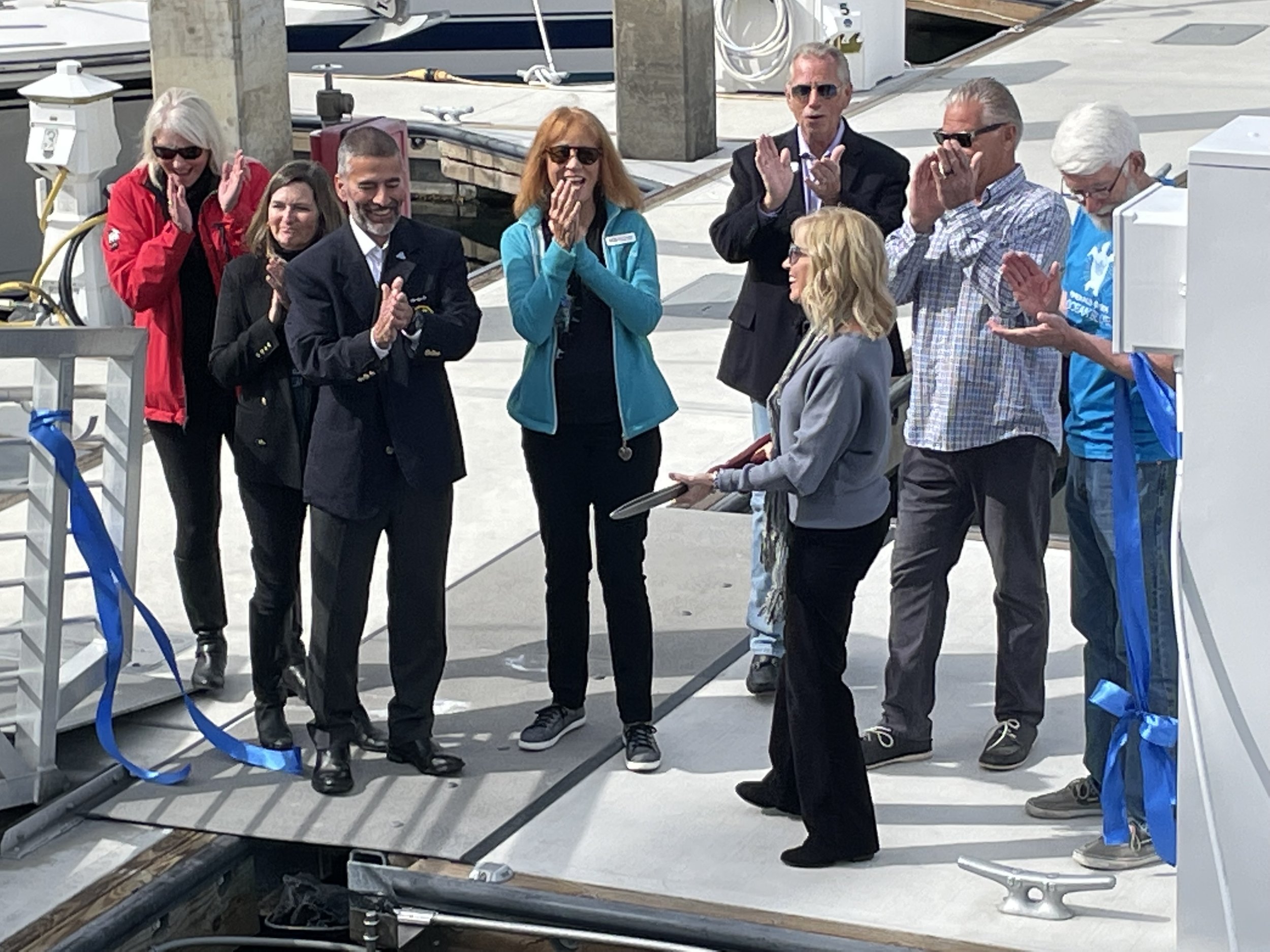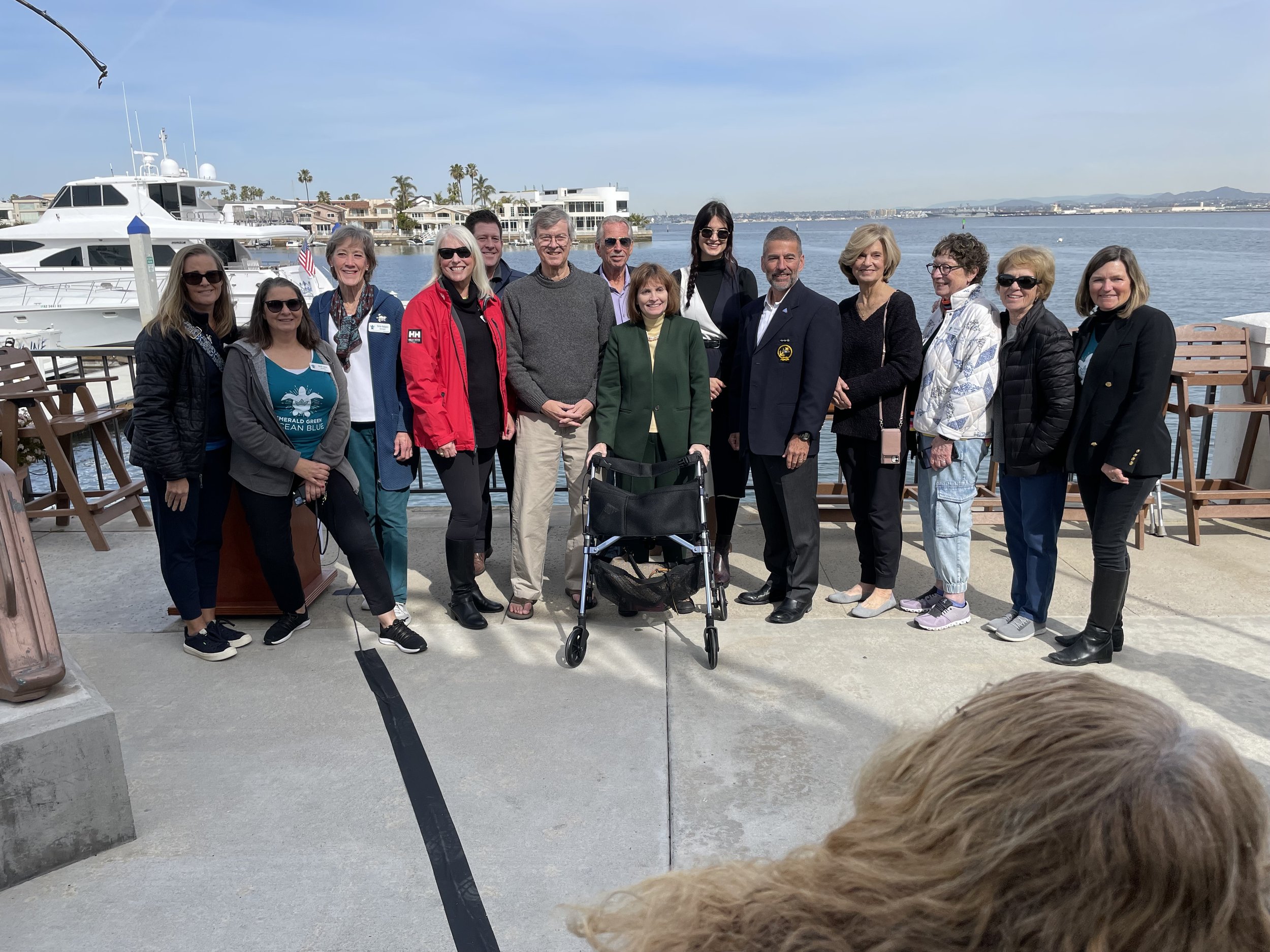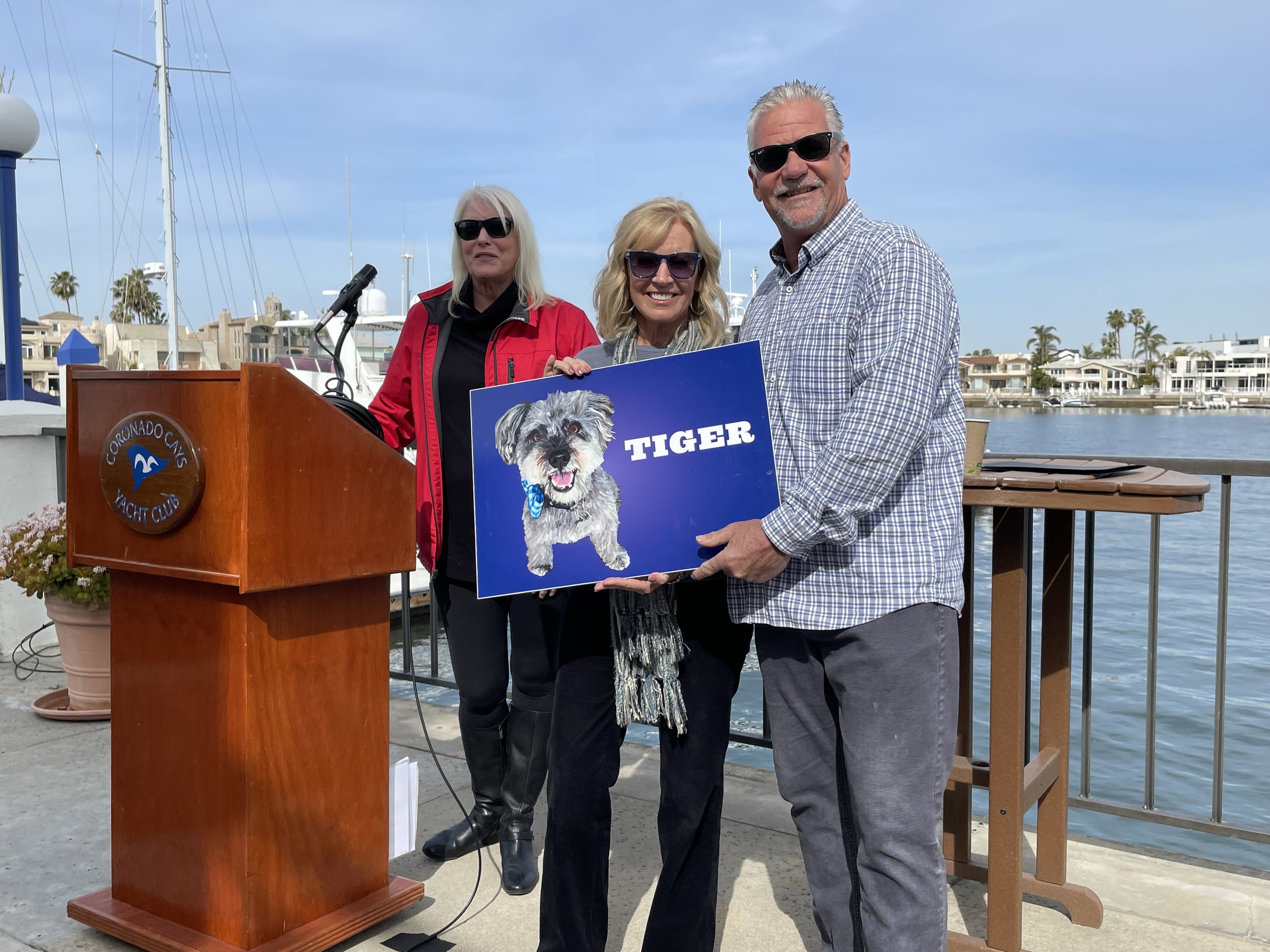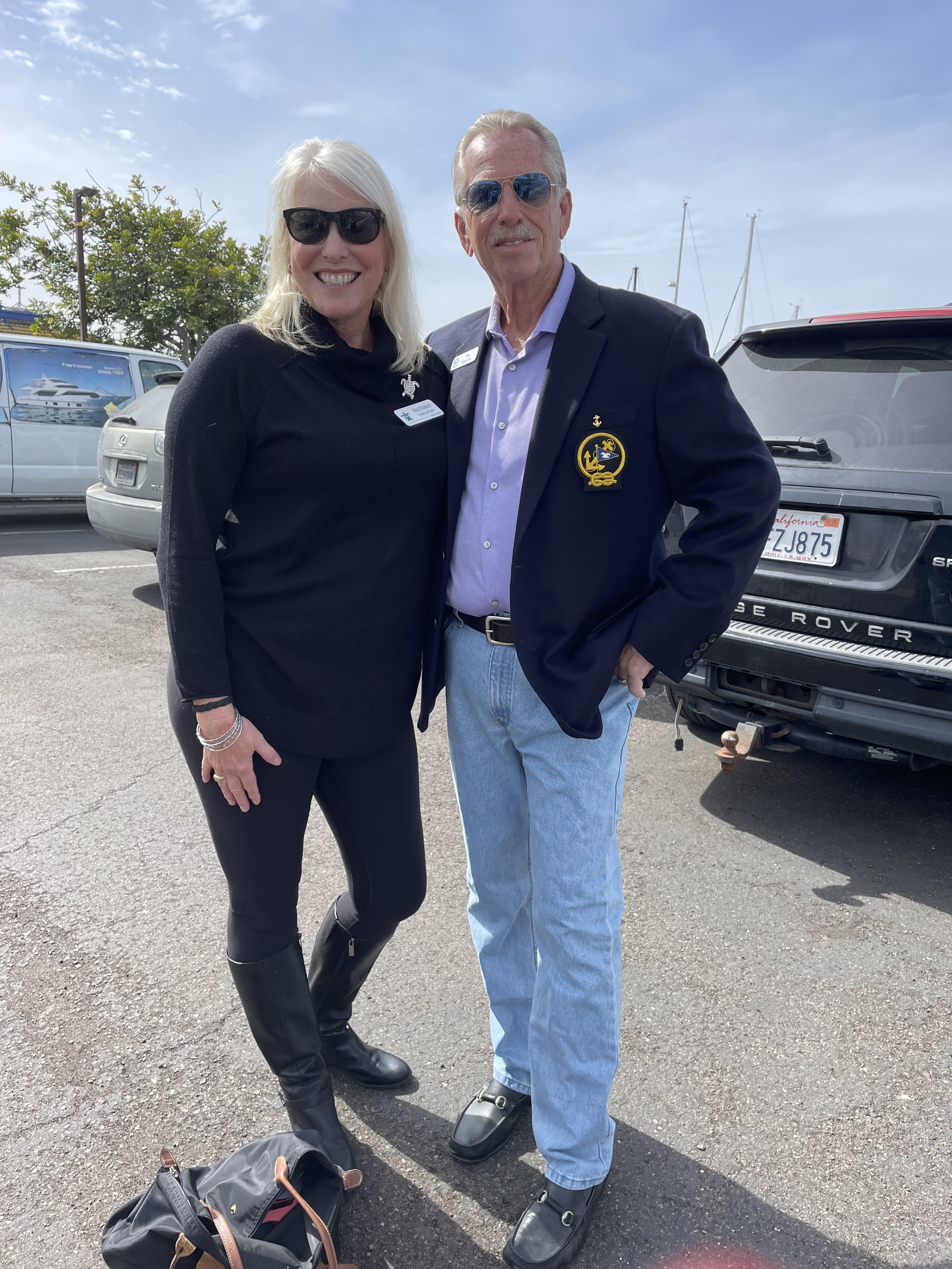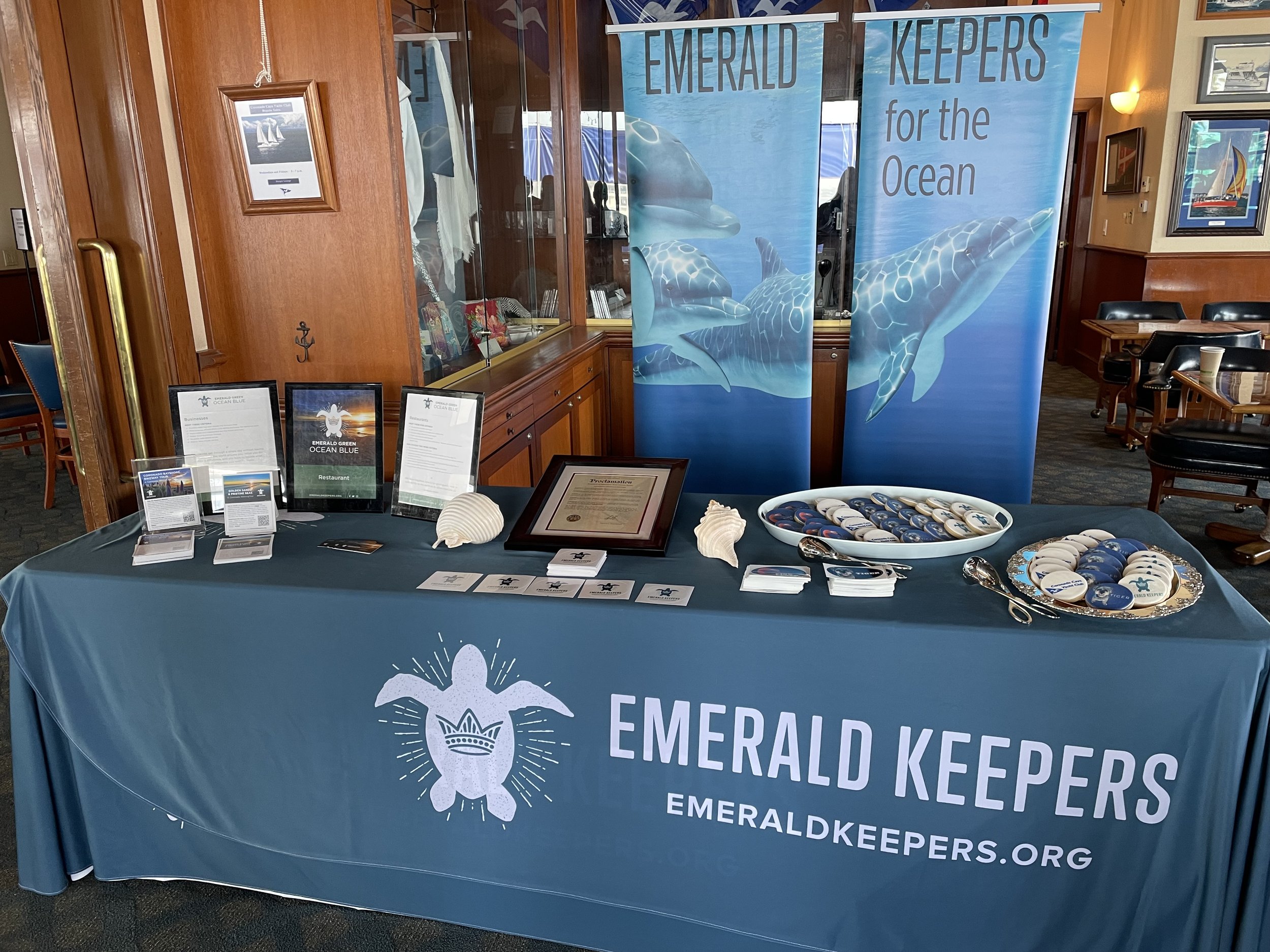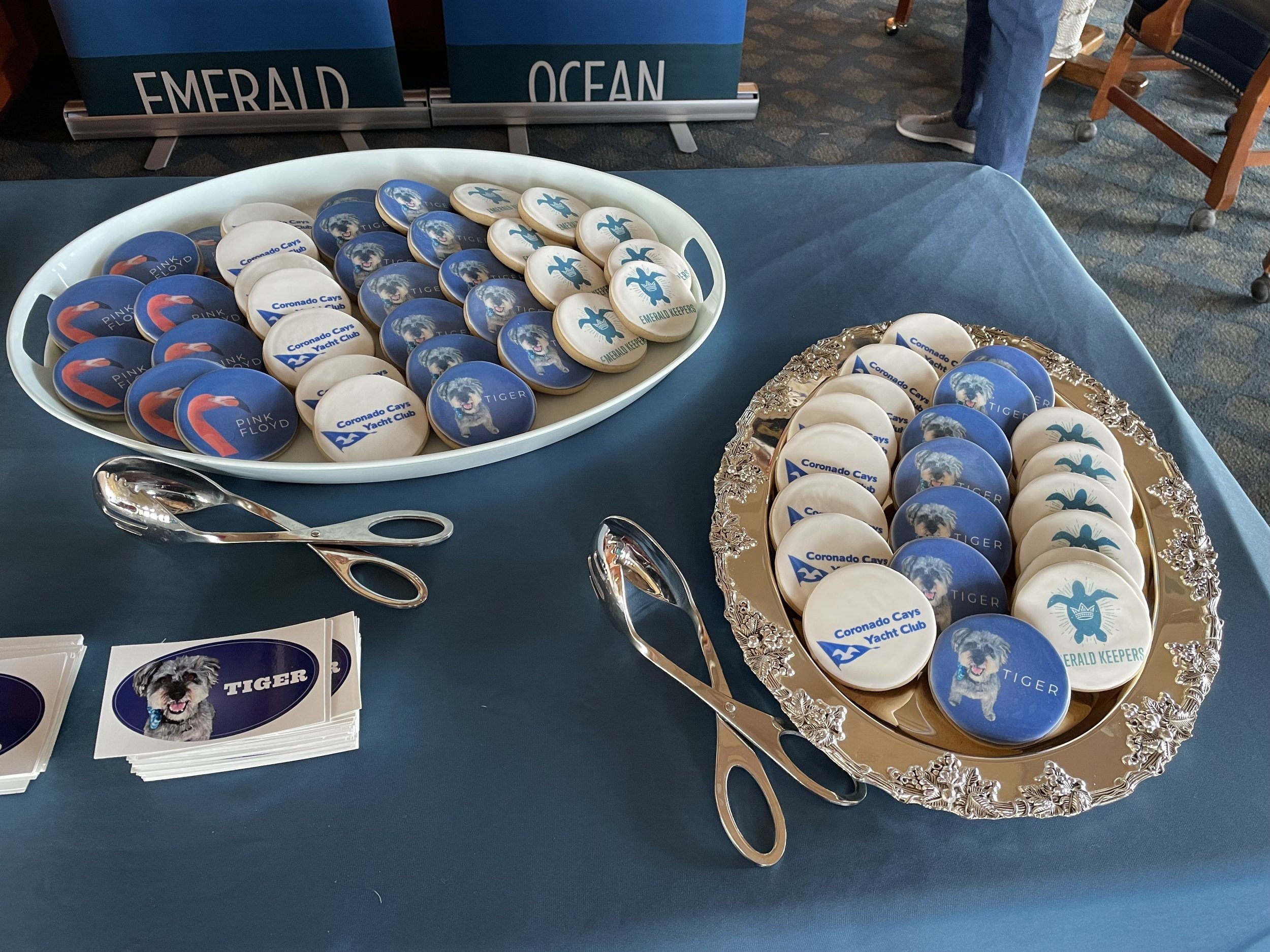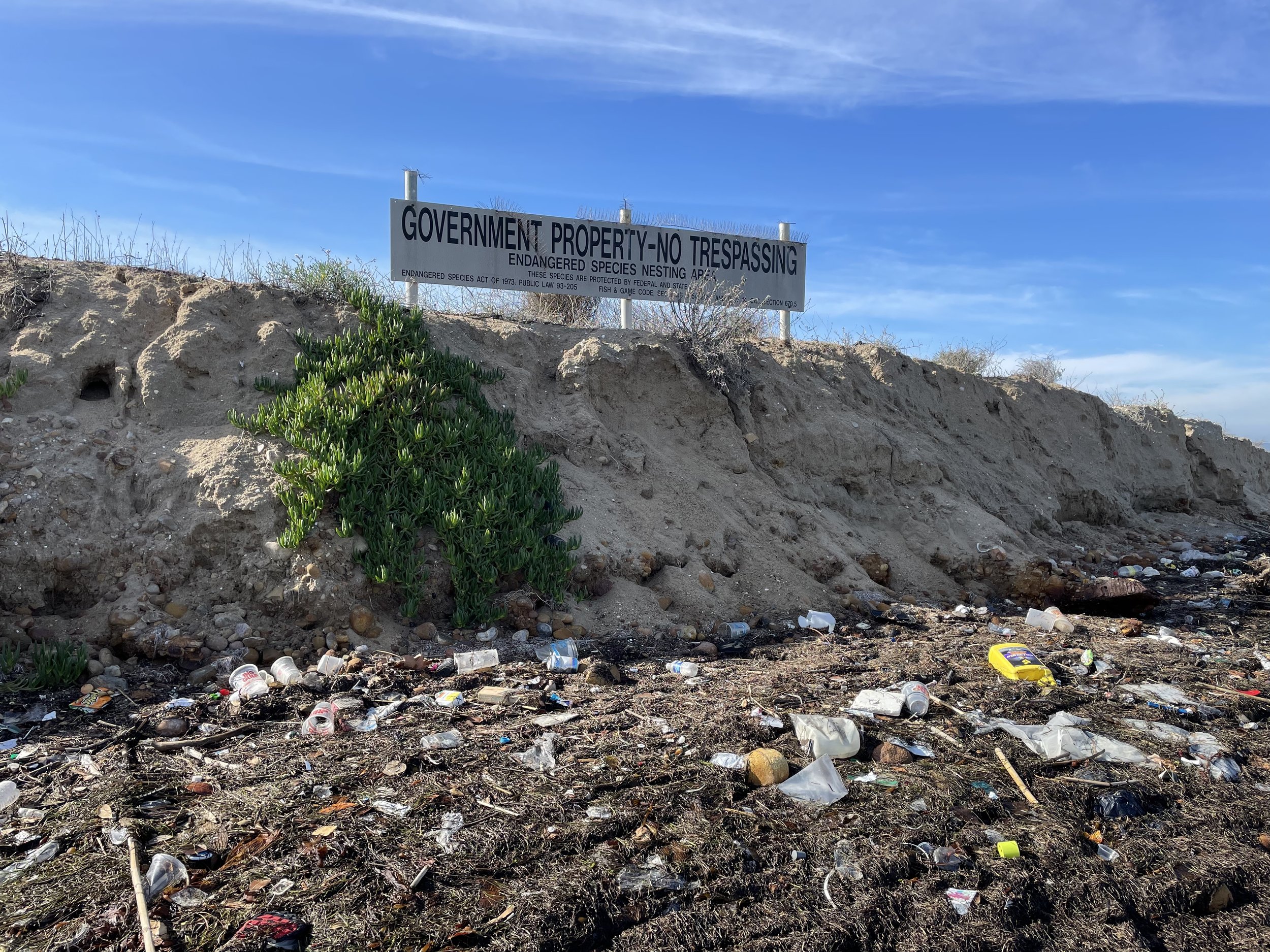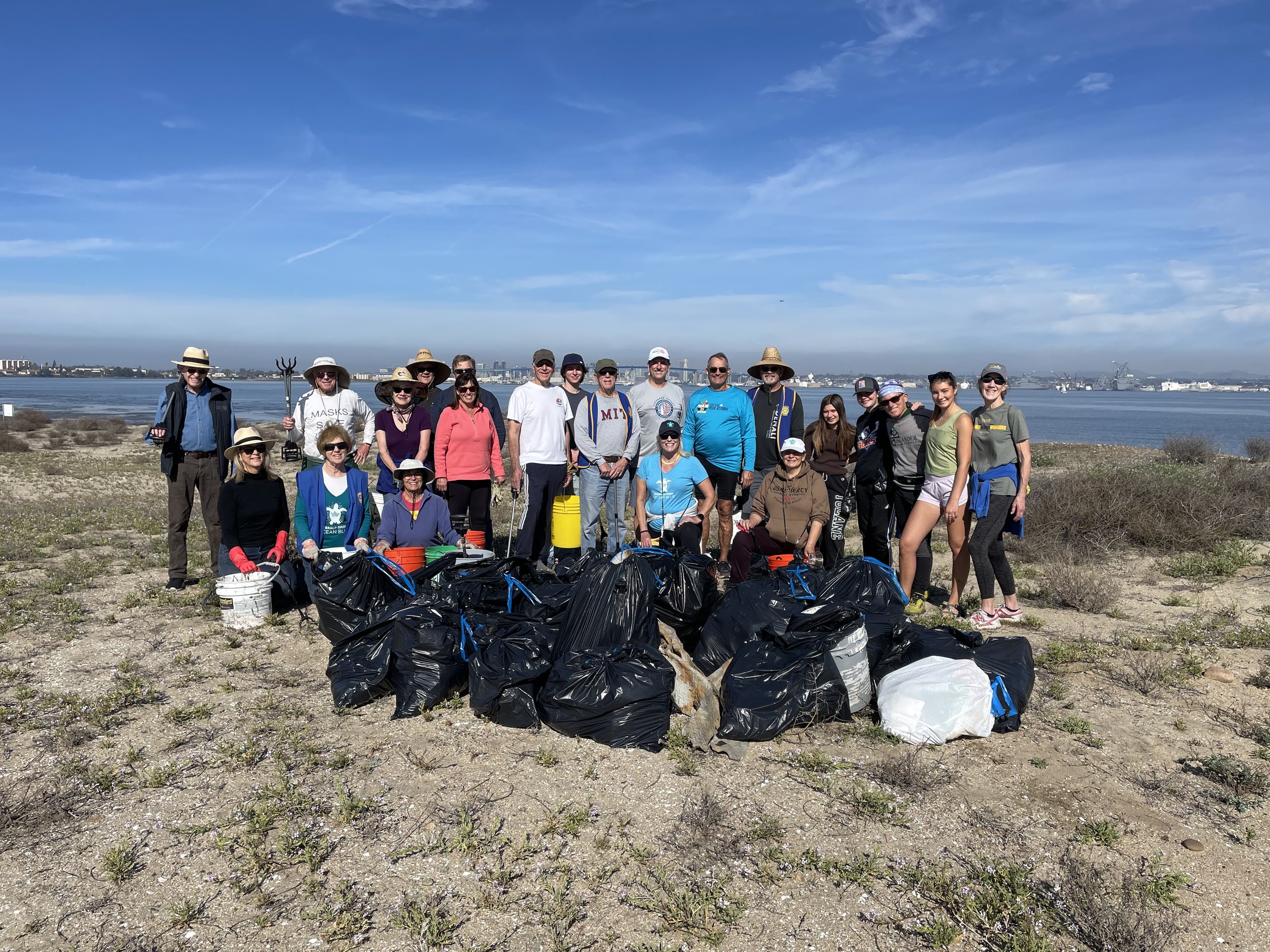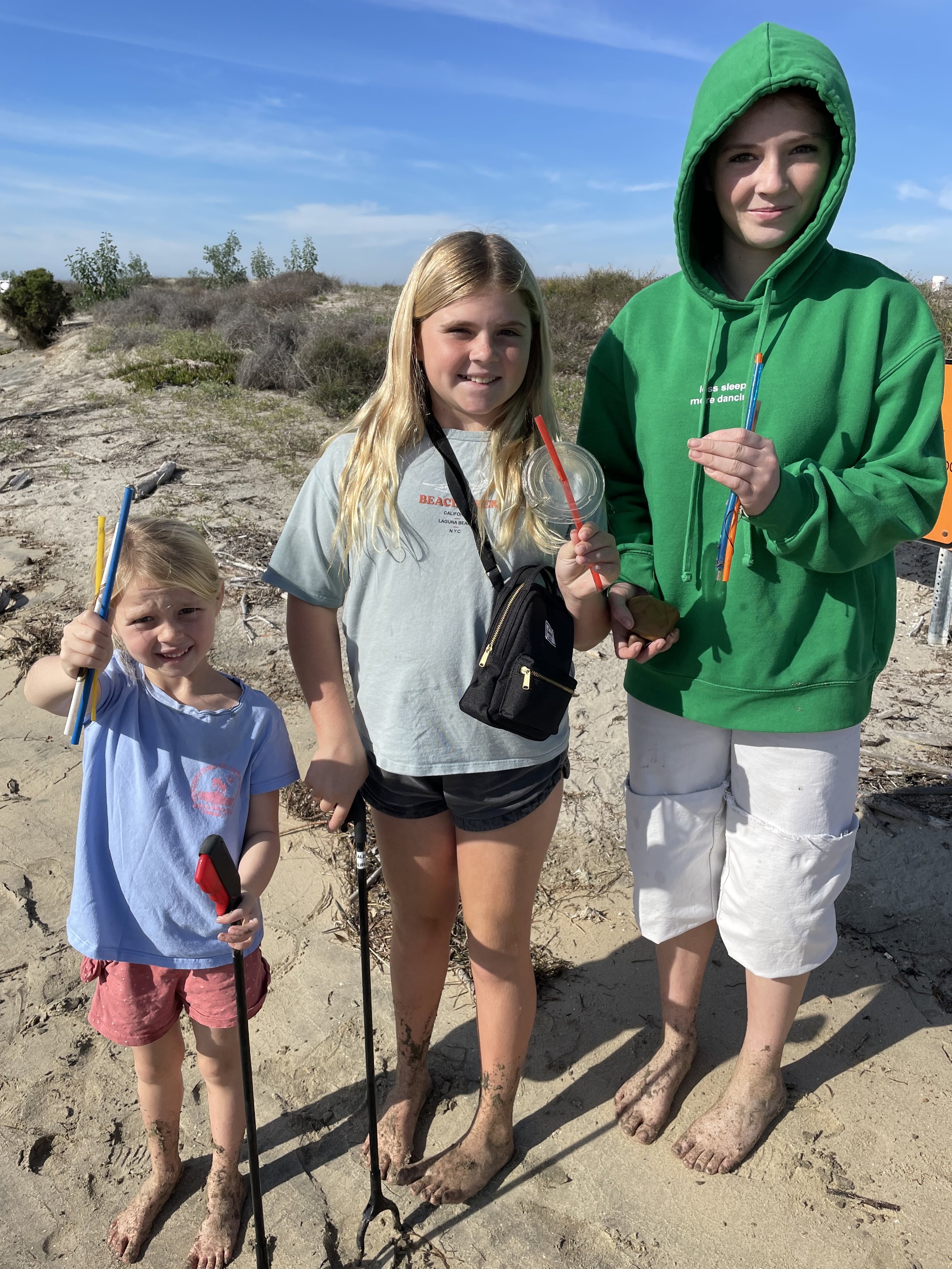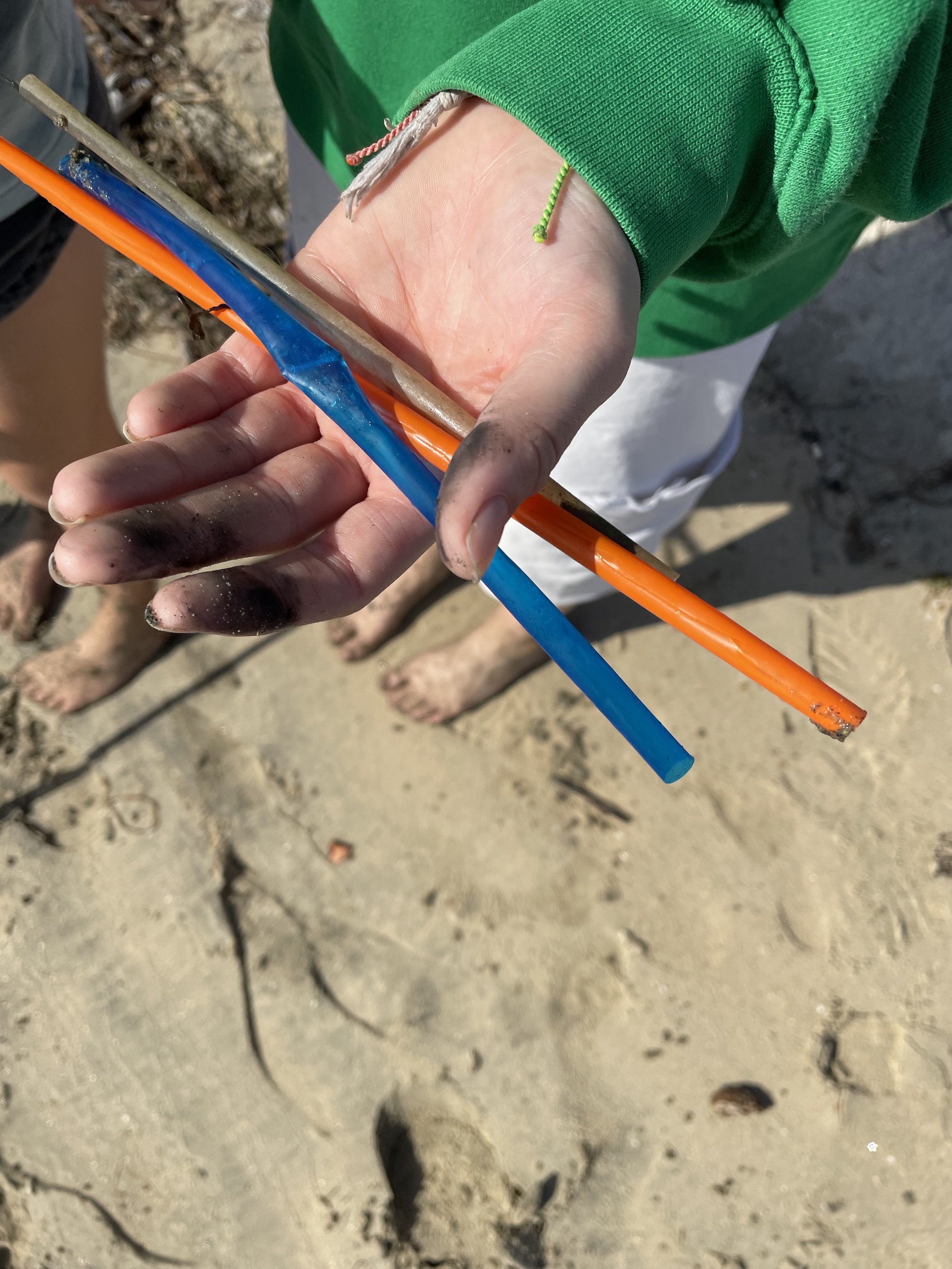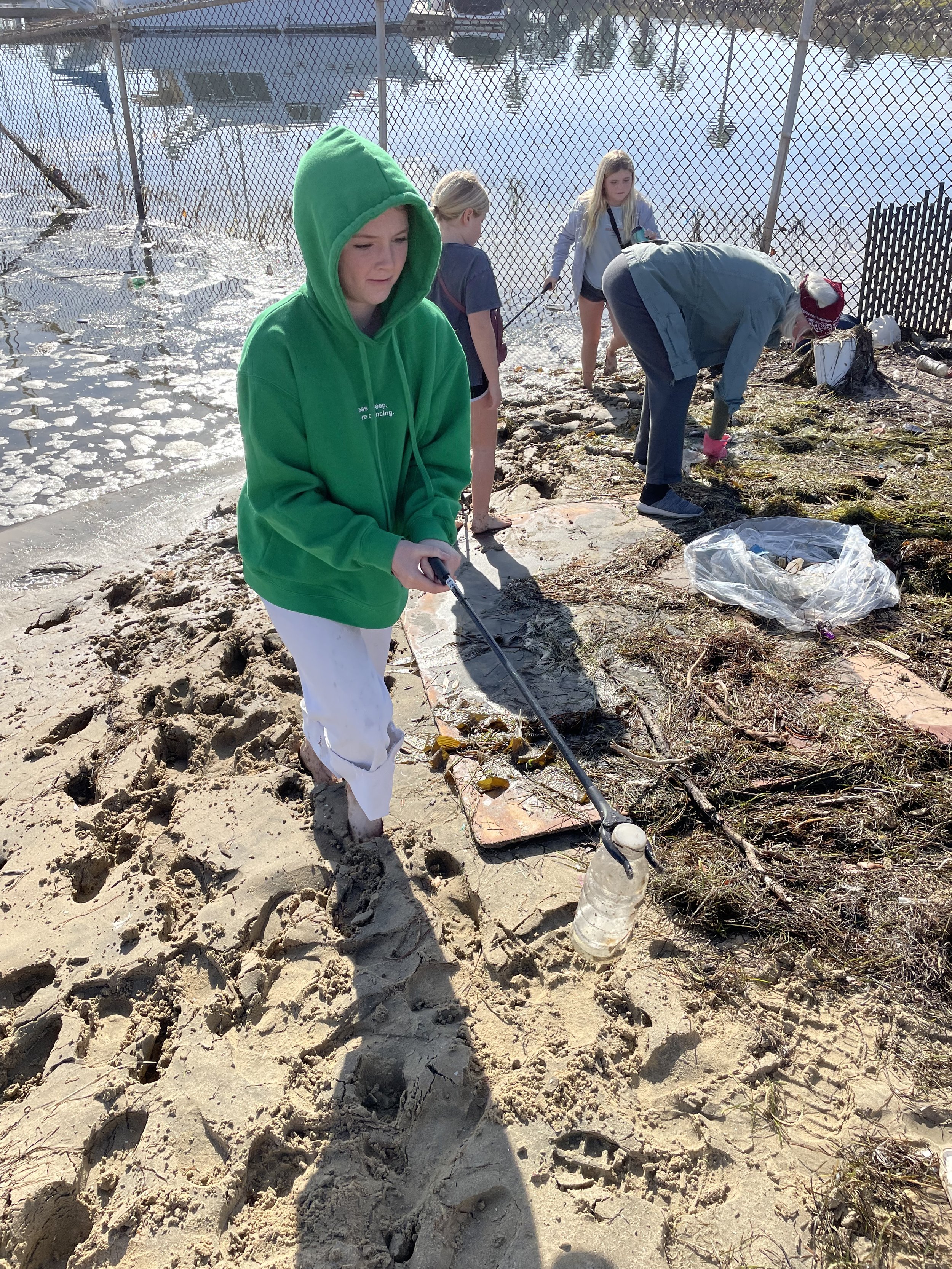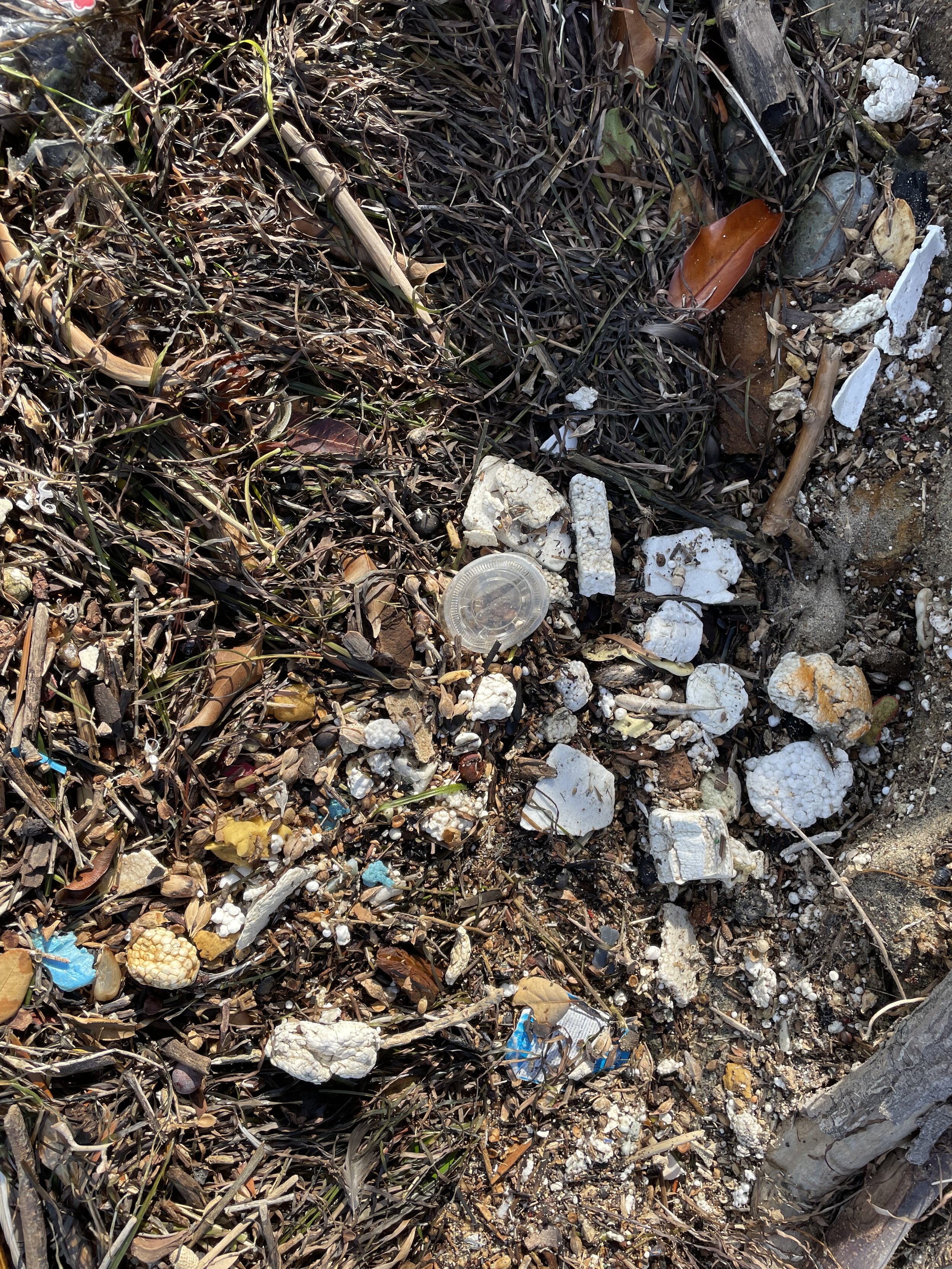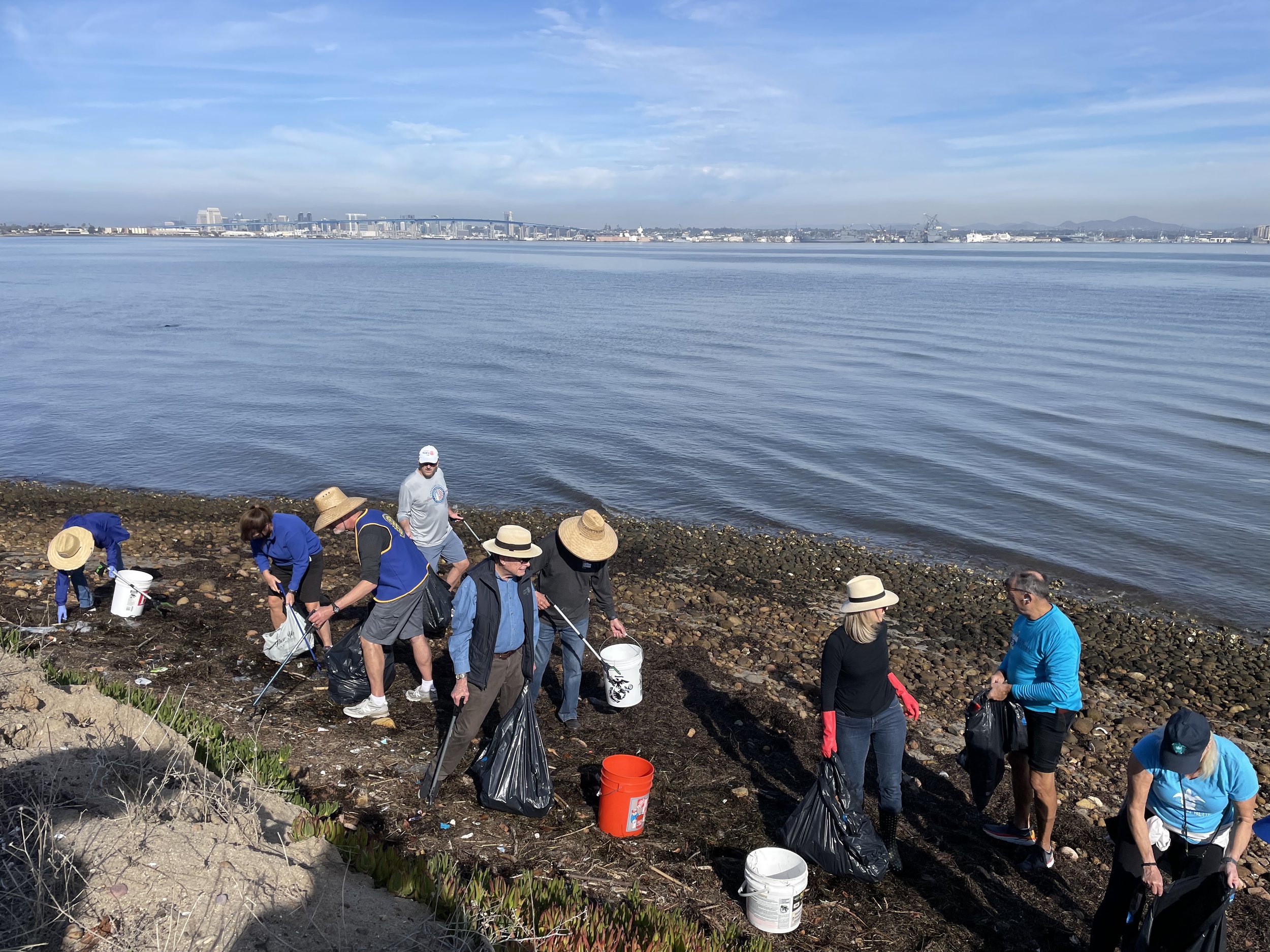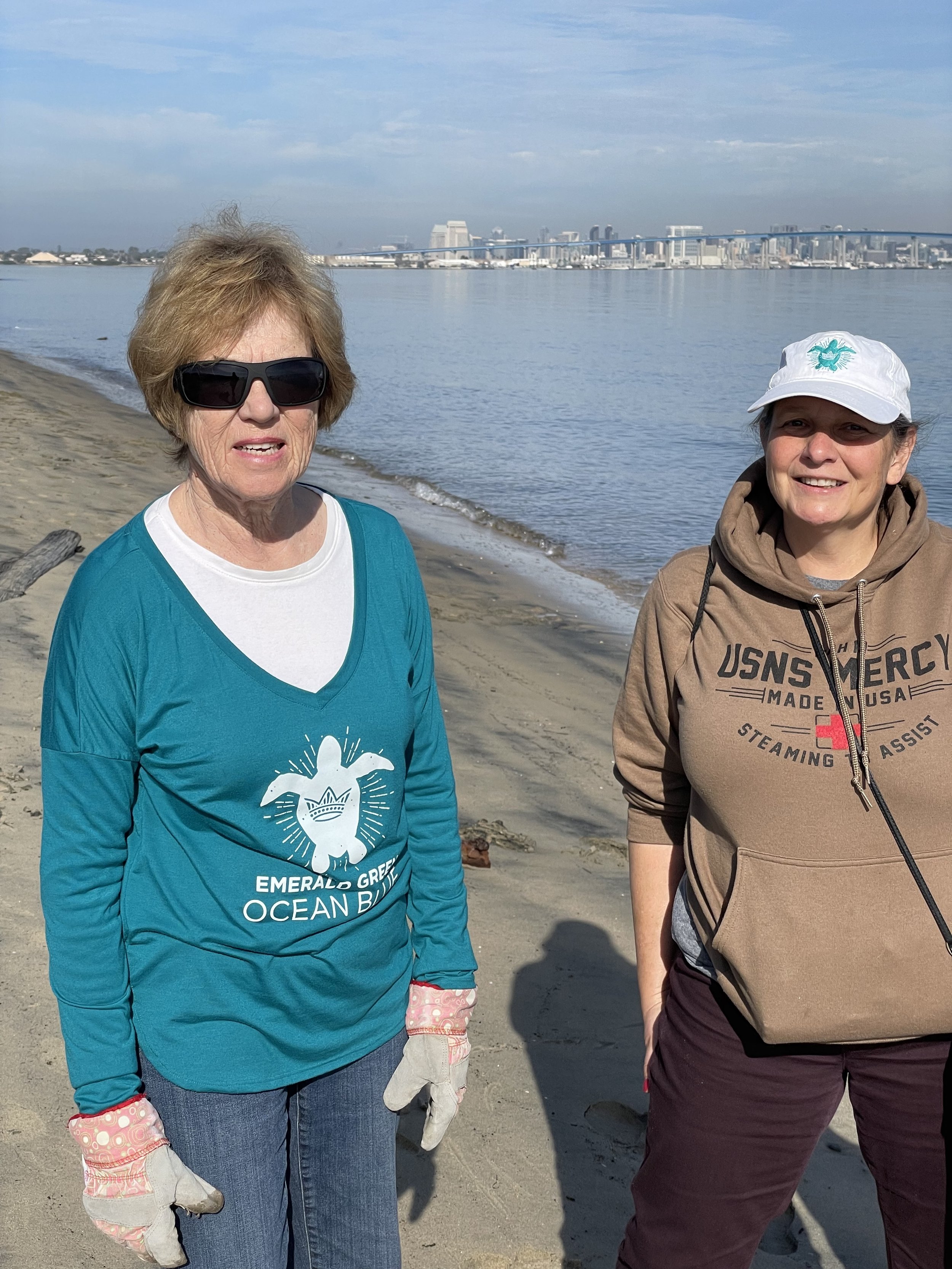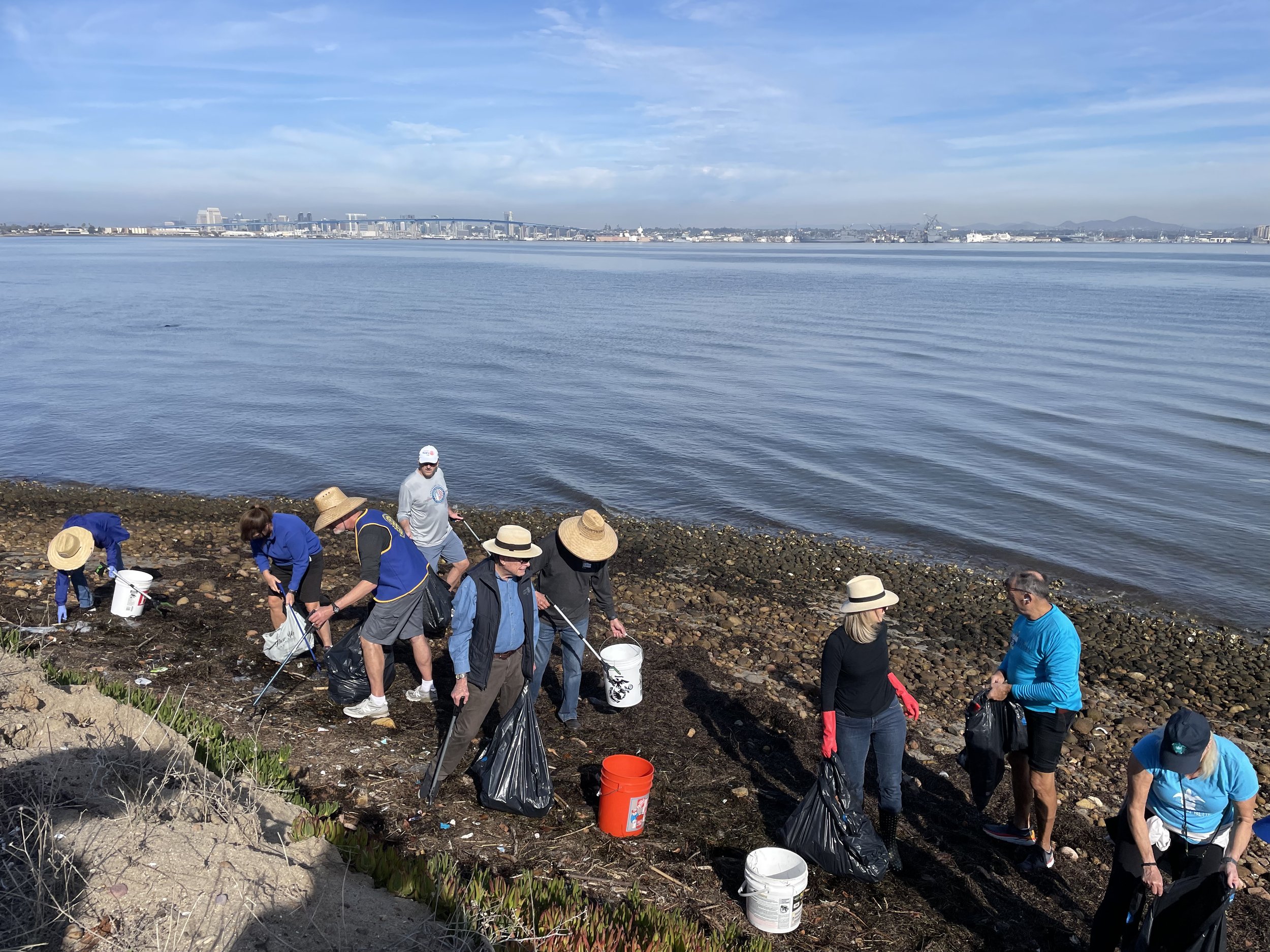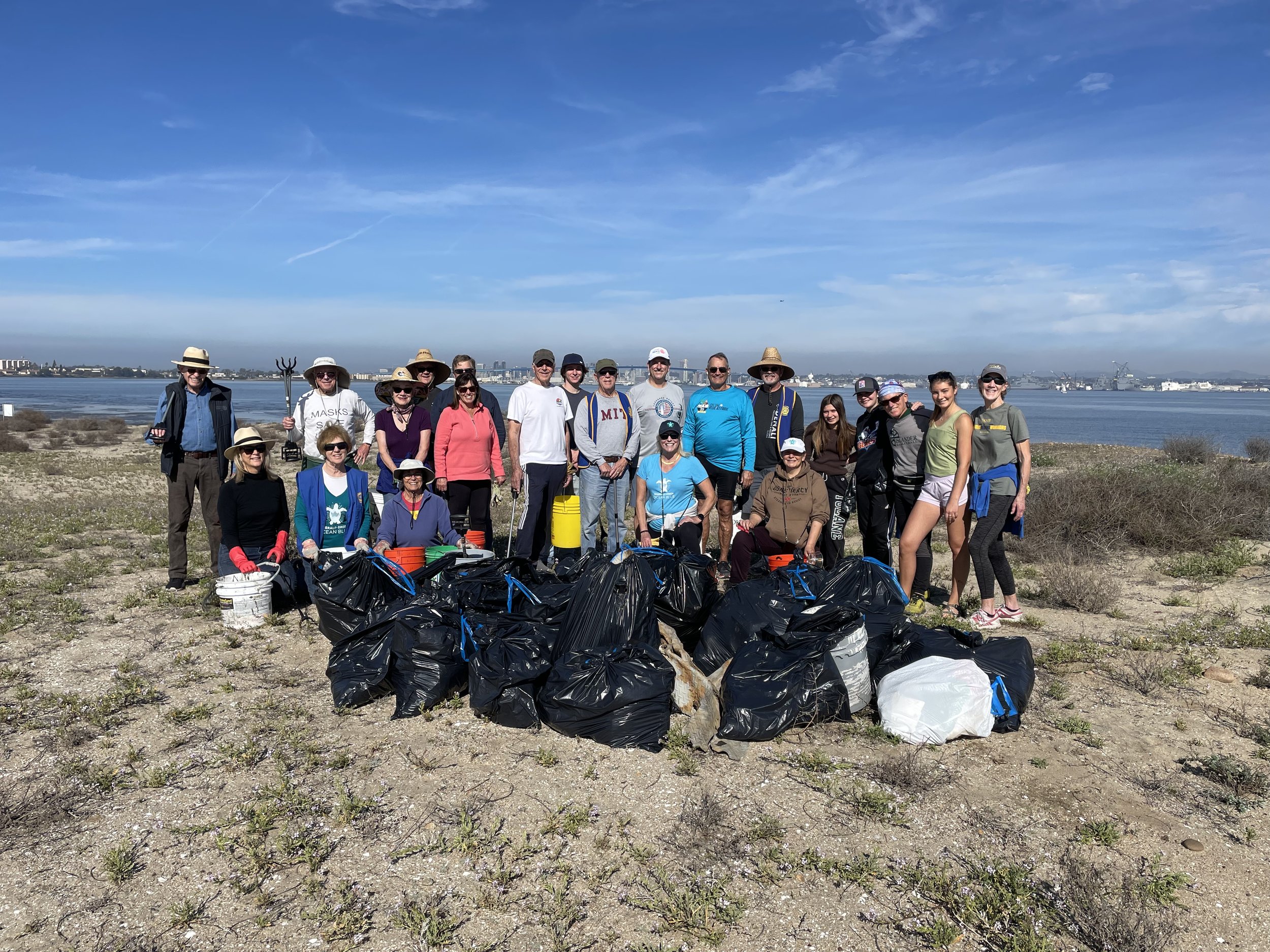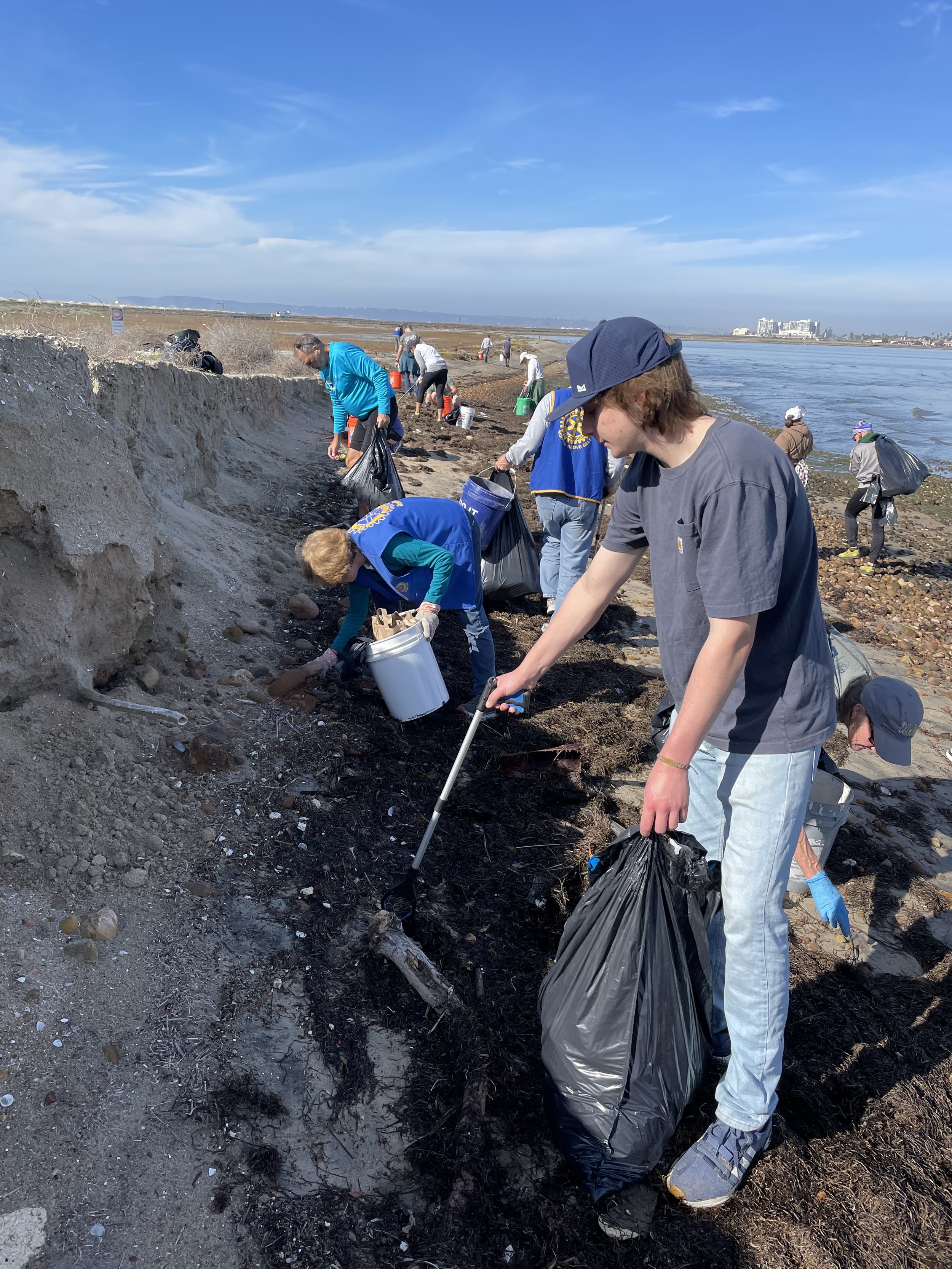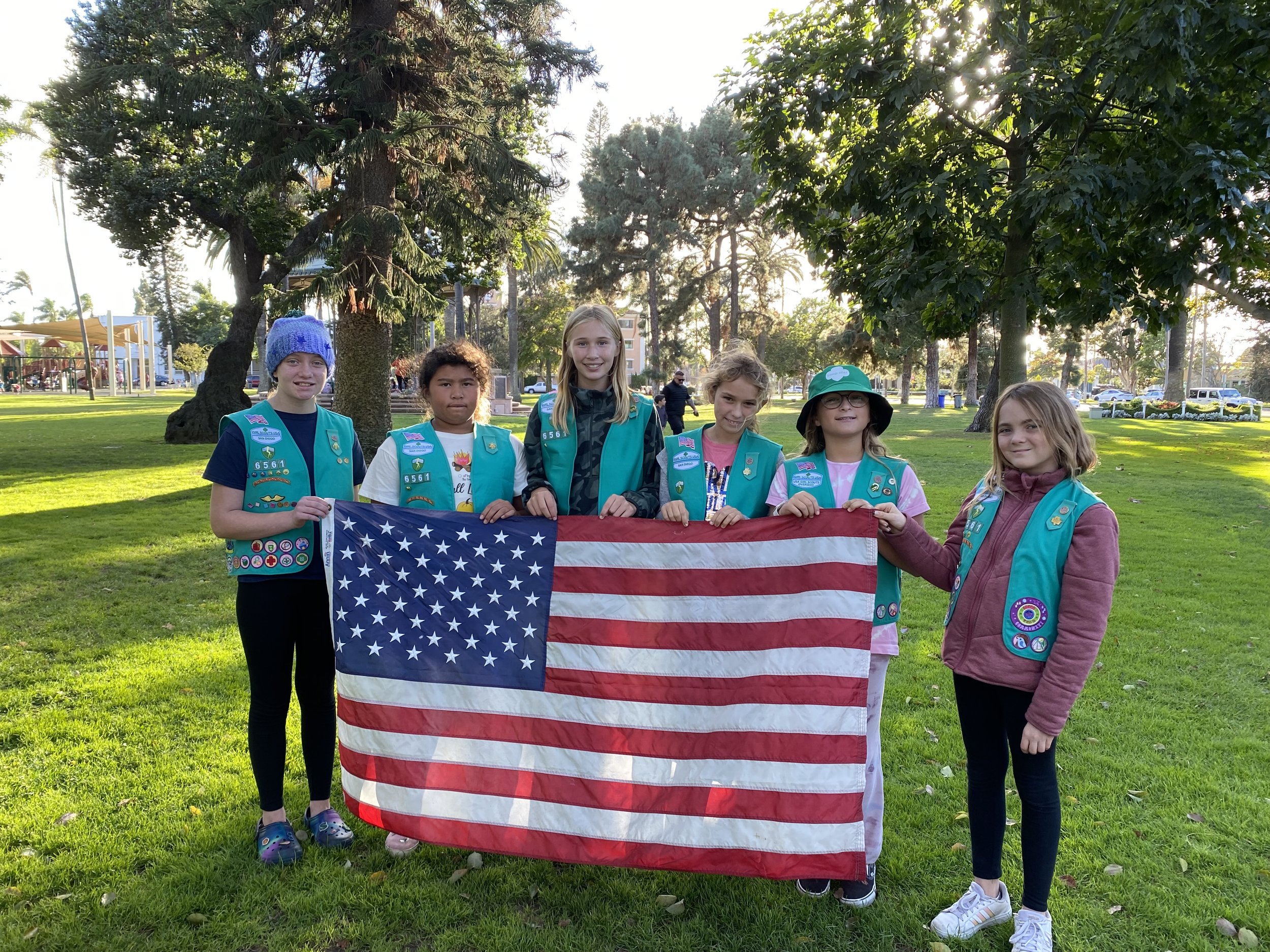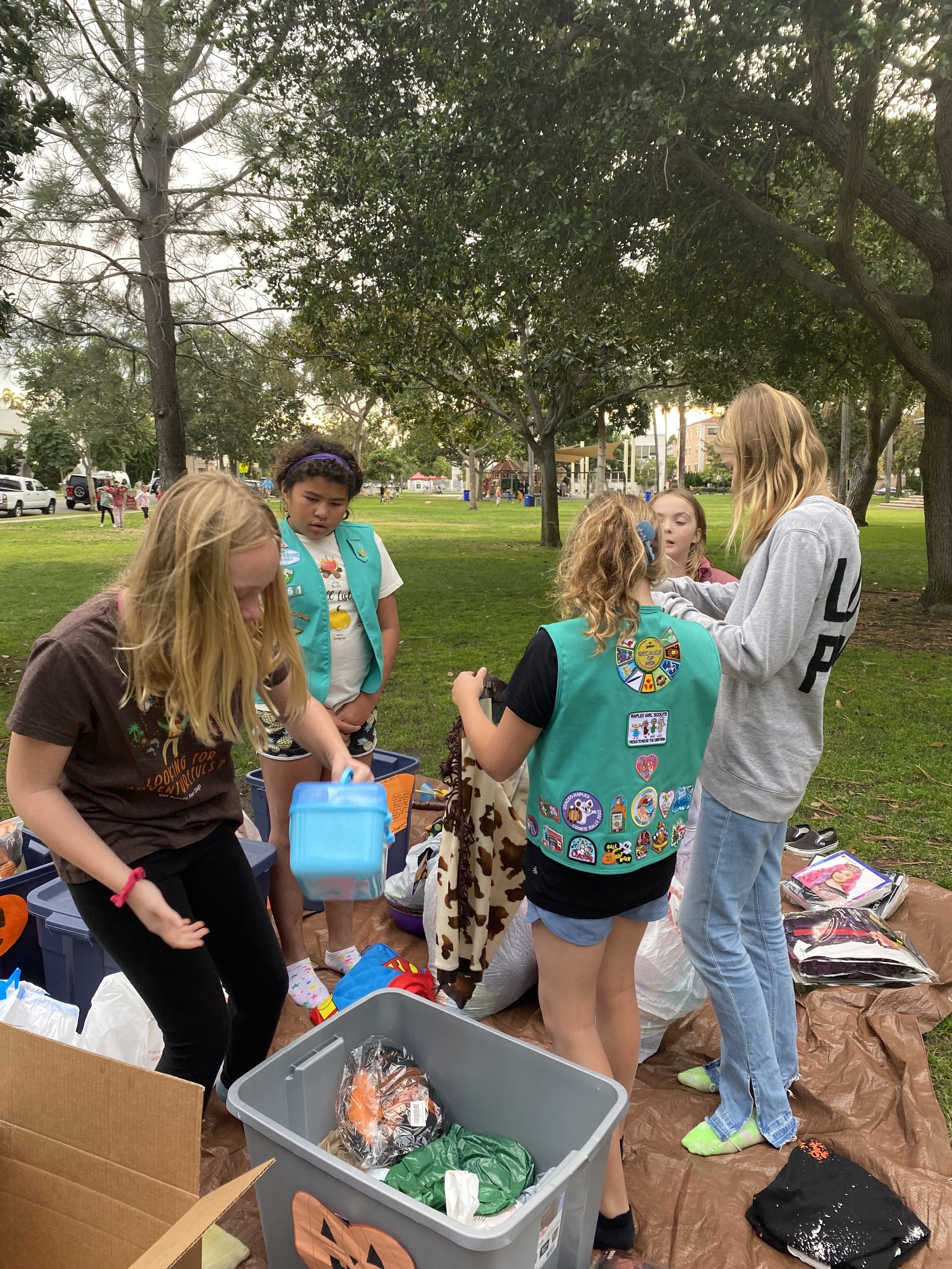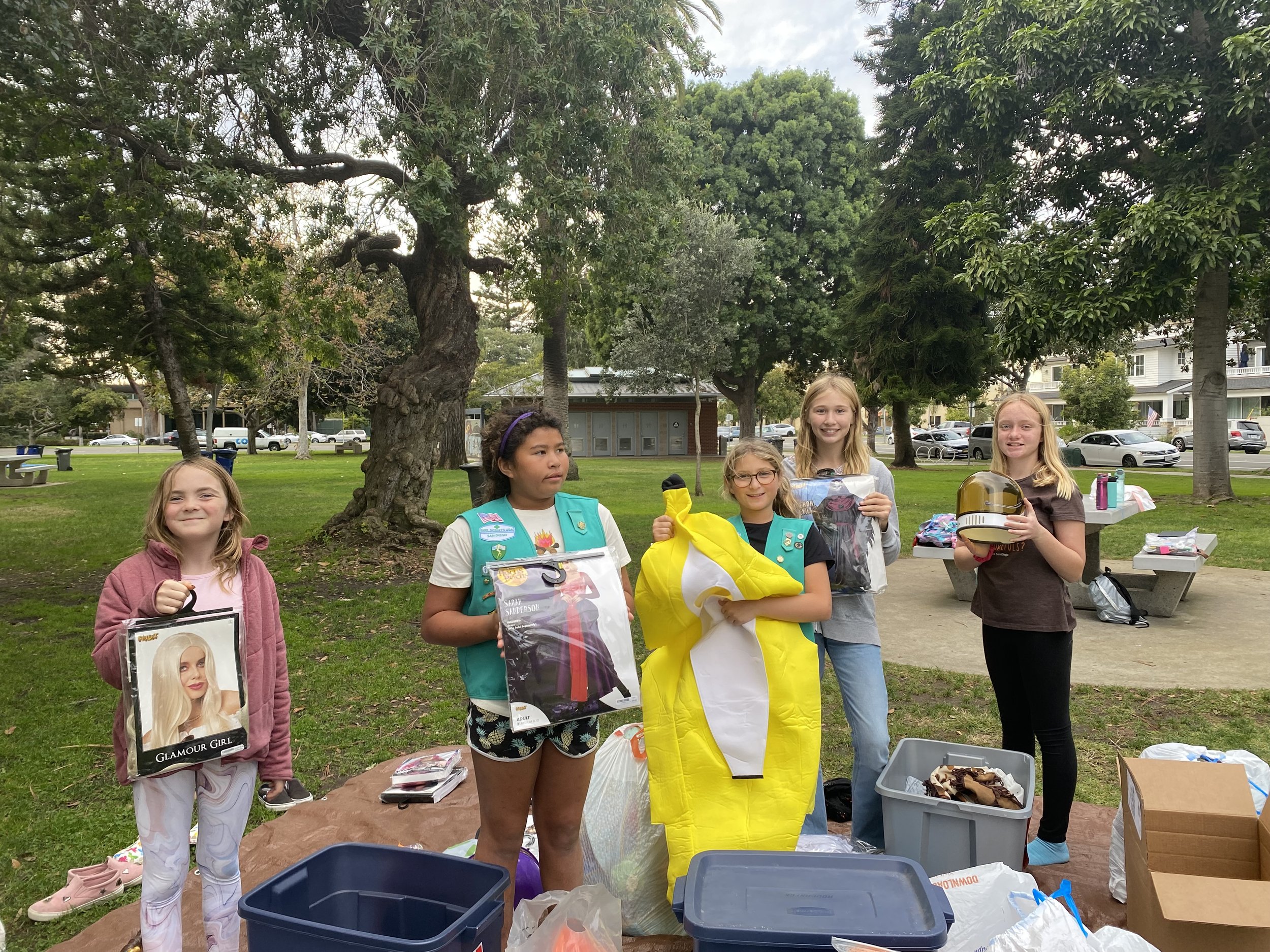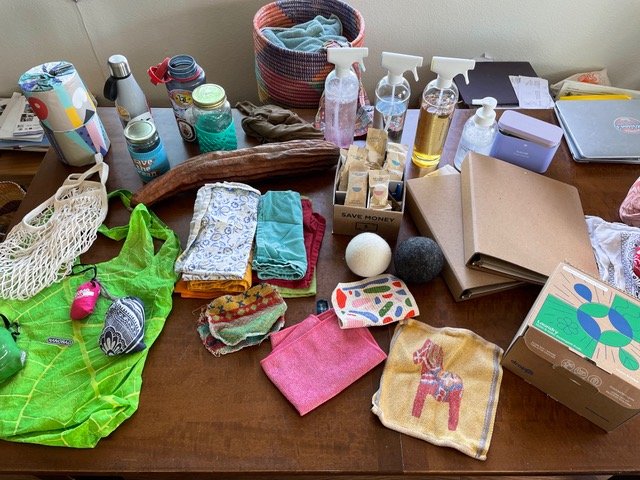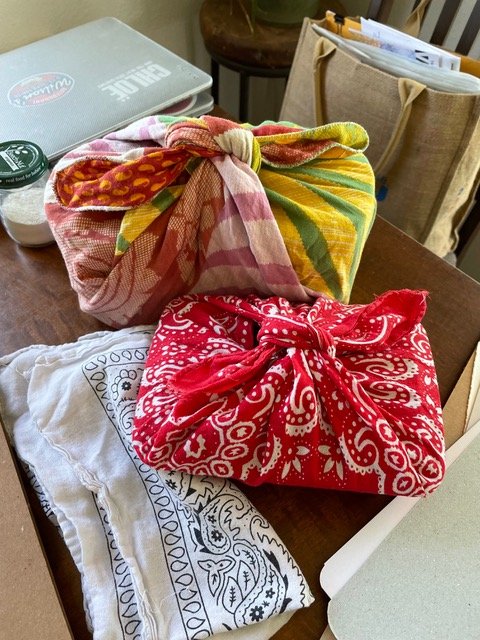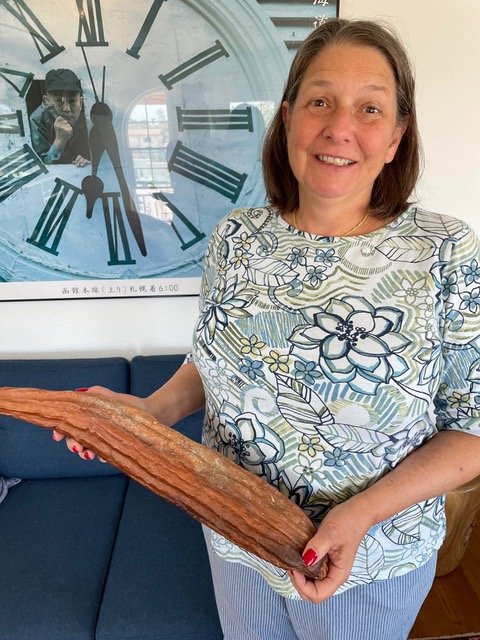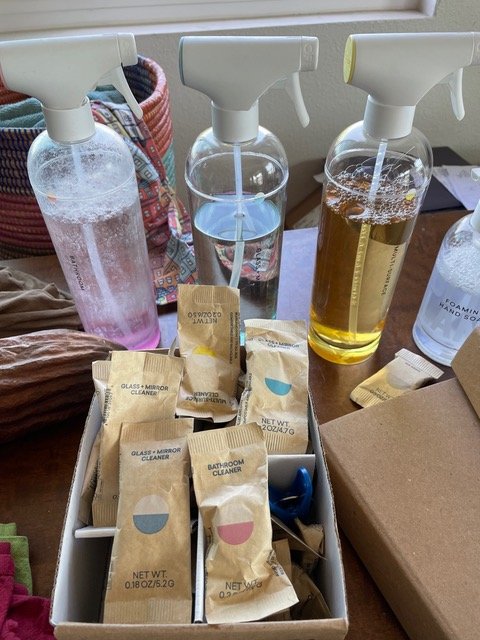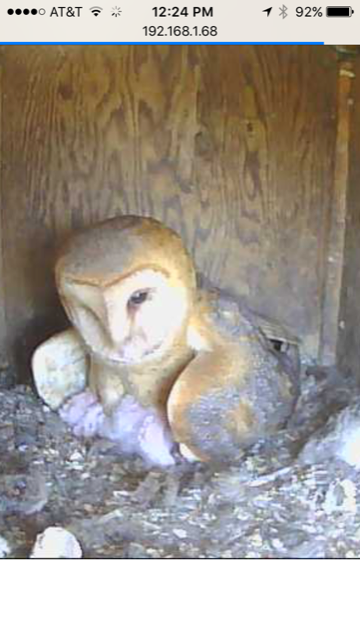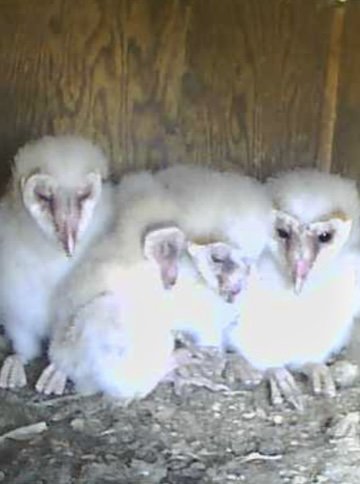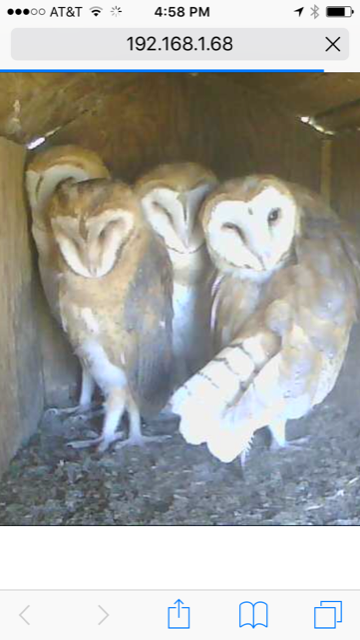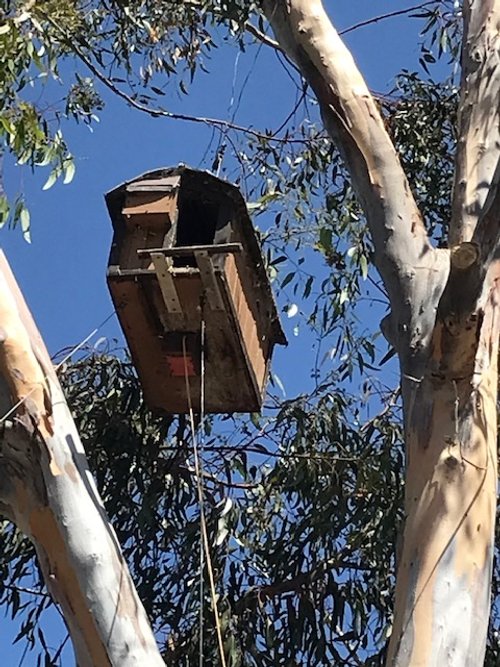Emerald Keepers is a local non-profit champion for the environment focused on educating the public and advocating, implementing, and celebrating sustainable practices in order to preserve Coronado’s uniqueness for generations to come. Given the increasing, global consequences of climate change and the responsibility of every individual and community to “bend the curve” toward more sustainable practices, city council candidate were asked to respond to the following two questions.
How do you envision Coronado becoming an environmental leader?
Carrie Downey
Coronado has provided infrastructure to encourage its residents and guests to walk and bike instead of driving around Coronado, by placing bike lanes and bike racks in well- travelled areas. Coronado should now be analyzing big items such as joining a Community Choice Aggregator (CCA) and take control of purchasing electricity for our city’s needs and Coronado residents’ needs. Given the analysis by all other cities in San Diego County have shown joining a CCA would lessen their electricity costs and give them more control over the types of generation serving the city’s needs, Coronado should take this step after completing our own cost/benefit study.
Coronado investigated putting solar on the City Hall complex when it was being built in 2003/2004, but the cost of solar panels made it not cost effective at the time. The economics have changed. Not only is the solar payback generally less than 10 years, but there are also numerous grant opportunities in the Build Back Better and the recent Inflation Reduction Act (IRA), that convert tax rebates which local government cannot use to monetized incentives for local governments to use when hiring a 3rd party to construct the solar system. Just as Coronado City Government worked with the Coronado Unified School District (CUSD) to bring both governments’ buildings up to current standards through redevelopment, Coronado can lead the way in establishing a public/private solar project with a solar developer that CUSD could join if desired, to lessen CUSD electricity costs utilizing IRA and other state and federal incentives.
The City has begun and just needs to reengage on the development of the water reclamation project on the golf course. Coronado has an agreement with our water provider, California American Water, who holds monopoly to allow the city to use Coronado created reclaimed water to water our golf course and medians. In this never ending drought cycle, we should set an example for other cities to reclaim water so we will be allowed to maintain areas of outside recreation and passive enjoyment, while still being water wise.
John Duncan
There are many ways Coronado can become an environmental leader. First, it is important to continue the conversation on environmental issues on a regular and ongoing basis. I am grateful to Emerald Keepers for hosting the recent Environmental Convening of Coronado Community Leaders last Friday. Though I am busy campaigning, I am grateful that I took the time to attend the entire event and learn from the speakers and Co-Attendees. I urge City Council members and future Candidates to do so in the future. Environmental technology is developing rapidly as are funding options and it is important to stay abreast of the most recent data to ensure Coronado does not miss opportunities by only looking at these important issues every few years.
Second, Coronado, though somewhat limited in owning the actual solutions, can be an environmental leader by keeping the Tijuana Sewage problem at the forefront of our focus. At the minimum, the Council should have a monthly report as to where the issue currently stands and discuss how to continue to pressure those entities to move forward. I have studied this issue for a decade as it is the largest environmental issue facing Coronado. The good news is that major funding and actual action is moving forward. There remains much to do to obtain the final funding and get additional and collateral projects approved. The main EPA projects seek to reduce the sewage flows by 80% once their projects are finished if they receive the remaining funds needed. There are also state projects that need to be funded. Unfortunately, last month the CA Governor vetoed a bill providing 100 million dollars for those projects. We can help lead the regional push to obtain that funding.
Third, though the name of the act does not touch on this issue, one of the main speakers at the Convening mentioned that the recently passed Federal Inflation Reduction Act does include numerous funding opportunities and incentives for Cities and agencies to obtain funds and credits for environmental projects. I would work to ensure the City studies these opportunities to see if Coronado may benefit from them.
Pilialoha Estall
Today being a community who takes environmental stewardship seriously, is necessary. We are preserving our environment for future generations. We desperately need an updated 'Integrated Water Resource Plan.' If we are not paying attention to potable water as a city now, it will greatly hurt us in the future. I want Coronado to be a role model city in its planning! And the wonderful thing is, we have the talent, resources, and bandwidth to make it happen. Implementing indicator tools such a 'community engagement heatmap,' can keep us in front of the sustainability issues, that need to be addressed collaboratively and with data.
Marvin Heinze
Upon reelection, I intend to build on the energy that Emerald Keepers and other community groups have infused in our environmental discussions. Coronado has made progress in environmental protection and must continue to improve. In my time as your Councilmember, I have taken Coronado’s issues to the state and national level through participation in the California League of Cities (CalCities) Environmental Quality Committee and the National League of Cities (NLC) Energy, Environment and Natural Resources Federal Advocacy Committee. I have given voice to border water infrastructure funding needs through an NLC resolution which circulated through Congress. In these state and national forums, I am able to share with other cities and gather their thoughts and ideas. I have learned that in our nation, Coronado is ahead of many cites in addressing dangerous chemicals, hazardous materials and in seeking cost effective ways to reduce environmental impacts. Currently our city evaluates electric and hybrid vehicles with every vehicle purchase to see if no-combustion engine vehicles are a good fit. We have two electric vehicles and four hybrid vehicles currently in the fleet and that number is growing. As the city plans upcoming construction projects to repair the library roof and rebuild our fire stations, solar energy will be incorporated in the designs. With the help of our waste hauling contractor, EDCO, organic waste recycling has been implemented in Coronado, ahead of many of our fellow California cities and the state mandate.
As our citizens show greater concern on environmental matters, the city government must continue to respond and accelerate our adoption of ”green” practices. The recently adopted Climate Action Plan and a Sea Level Vulnerability and Adaptation Plan provide a roadmap of options. Now we need to get down to deciding which we want to tackle first. I look forward to implementing actions from the climate action plan as we plan the next budget.
Transportation is a significant portion of our greenhouse gas emissions and gaining control of our streets will allow us to prioritize carpooling and alternate commutes to reduce the emissions from individual automobiles. Relinquishment will help us address our air and noise pollution.
If elected to City Council, what would be your priorities to protect our environment?
Carrie Downey
1. Restart the water reclamation project bid process to move the project forward. The need analysis has been completed, we just need to obtain the best construction and operation contract.
2. Review options to join or start a CCA to gain public input on which option to pursue.
3. Study cost/benefits to have solar on all city buildings and public/private partnership opportunities using IRA allowances.
4. Review current Coronado permitting regulations to incentivize homeowners to install solar and electrify current home infrastructure including the use of heat pumps, solar hot water heaters, electric stoves, and other non-fossil fuel appliances.
John Duncan
There are many projects that we should look to implement and or do on a trial basis. Clearly, installing solar panels to generate power for our City facilities is a fairly straightforward project to look at implementing. I have almost fifty solar panels on my house and we are a heavy power user household with six active residents. Our panels provide more power than we use and we frequently send power back to the grid. With City facilities, many are only open during the day when there is enough sunlight to power the buildings. For the few buildings open at night, there are battery options to store power during the day to mitigate the need for the grid in the evening.
We should also consider alternate transportation options such as trial programs for smaller shuttles. Similar to the summer shuttle, yet year round with smaller shuttles and also a trial program with the Cays on trial schedules. For the Cays, possible morning, afternoon and evening runs. if users use these shuttles, it would help with traffic and related issues such as emissions as well as parking.
Again, in regard to the Mexico Sewage problem, there should be monthly updates to the community on status as there is a frequent lack of information or understanding within the community.
We need extra trash pickups and/or receptacles for holidays, summer and special events. Overflowing trash blowing around the beach, the bay and into the ocean is not acceptable.
The City can look to have more electric charging stations. The Del added many during building the new parking lot and it is often stated that the stations pay for themselves or make money for the City.
Of course, with any of these projects, we need to ensure we take into account the fiscal impacts to ensure they are feasible. However, continuing the think outside the box is important.
Finally, if we want to get anything done, then City Council and the town must approach environmental issues with the philosophy that is shared by Emerald Keepers. We must not judge everyone negatively that has different opinions. We must work together to bridge gaps and accomplish realistic good things to make an impact. I have the same philosophy and will work to be a realistic problem solver on City Council.
Pilialoha Estall
The Tijuana River Valley sewage crisis is a top priority for me. Working on local, national and bi-national environmental campaigns, including in Mexico, I know what it takes. It needs to be a consorted effort, locally and nationally, through policy, advocacy and education. I was endorsed by Mark J. Spalding, J.D., who has been very involved in bi-national environmental protection for over 30 years. We have also worked on successful bi-national preservation projects together in Mexico, and he is currently the President of the Ocean Foundation in Washington, DC.
Marvin Heinze
The next Council should:
· require that environmental impact is included as a factor in each city project
· direct the implementation of portions of the climate action plan
· secure relinquishment of the highways to be able to address vehicle pollution
Through improving our environmental sensitivity, we will Keep Coronado Special!
Emerald Keepers would like to thank each of the four candidates for taking the time to thoughtfully answer our questions.











